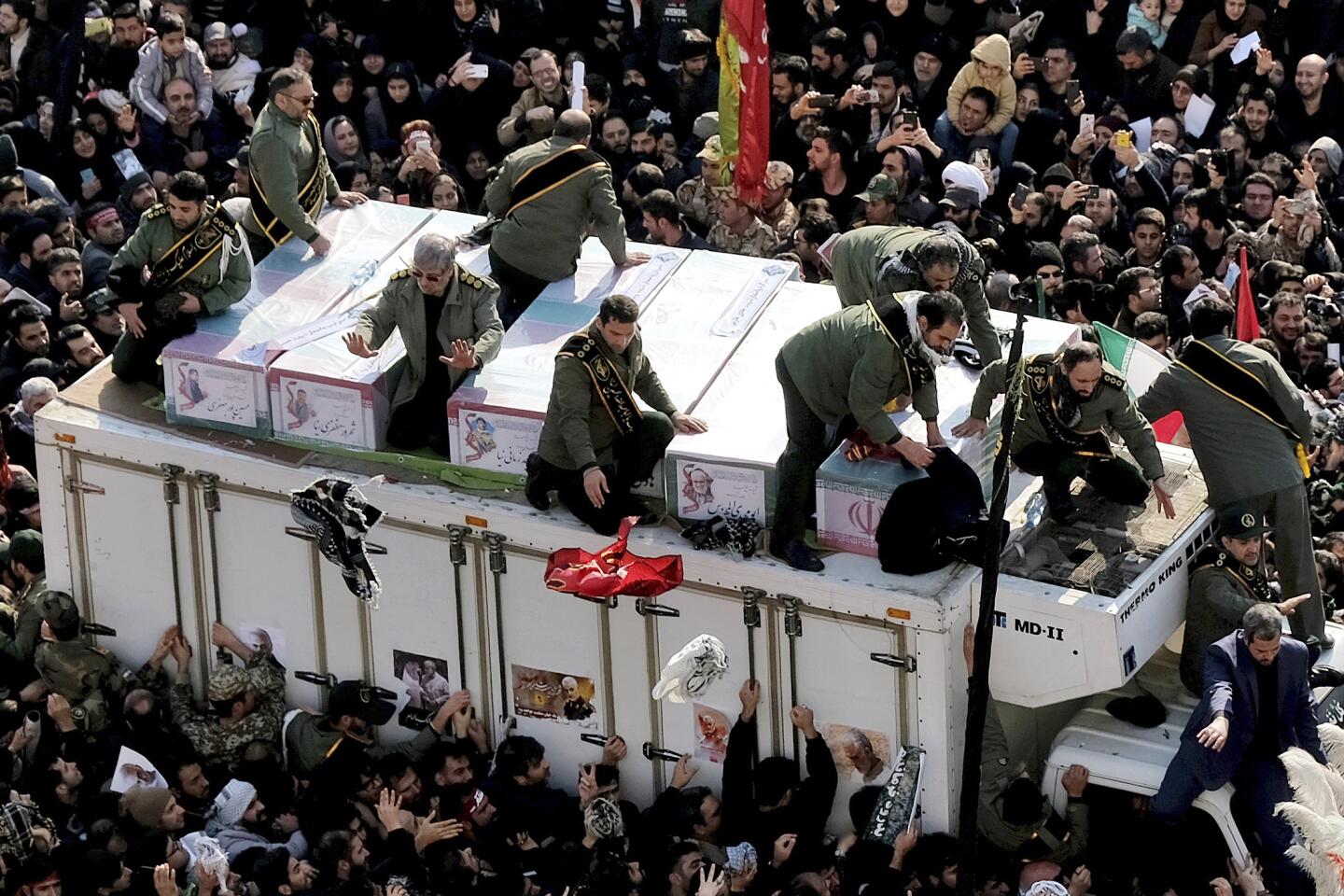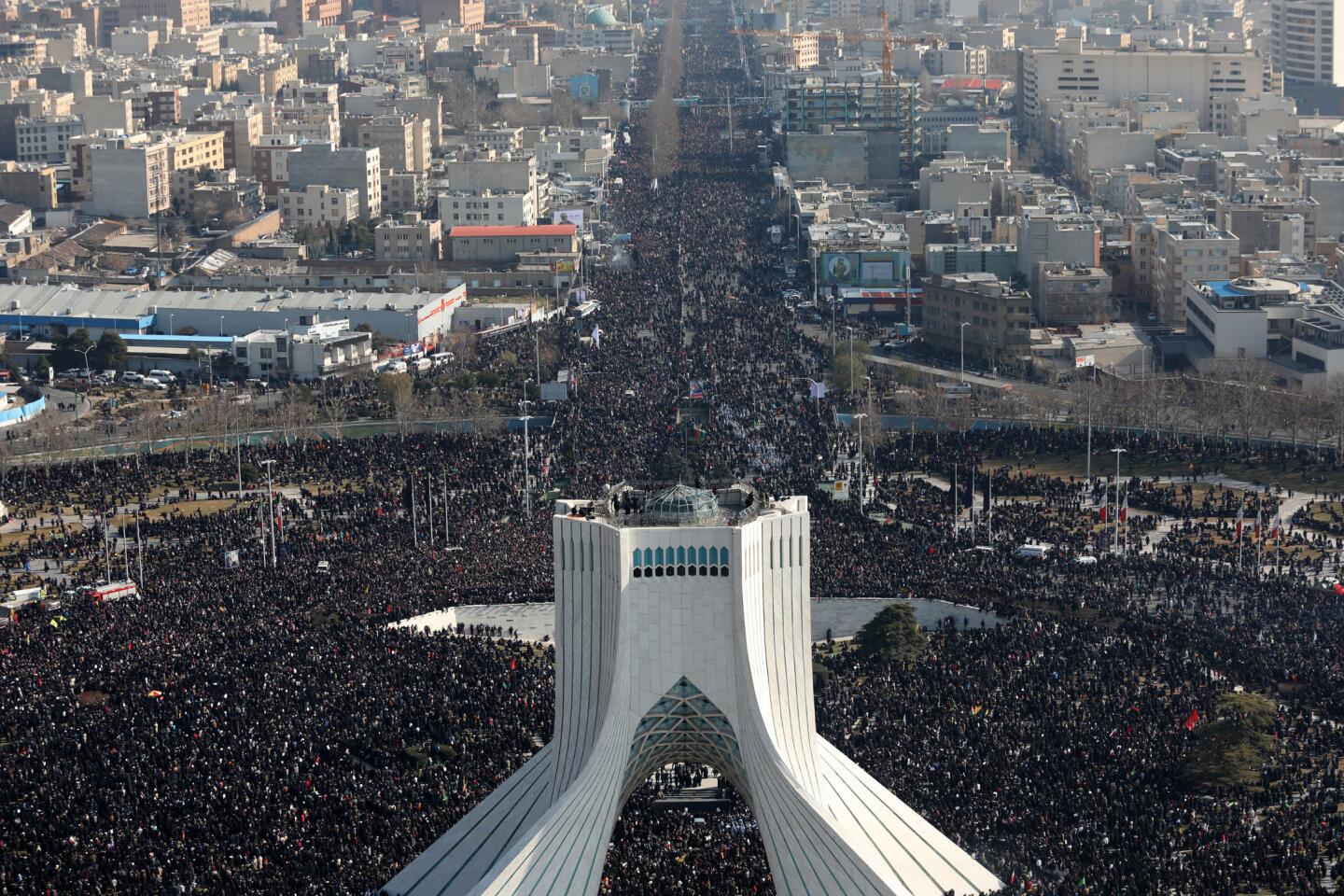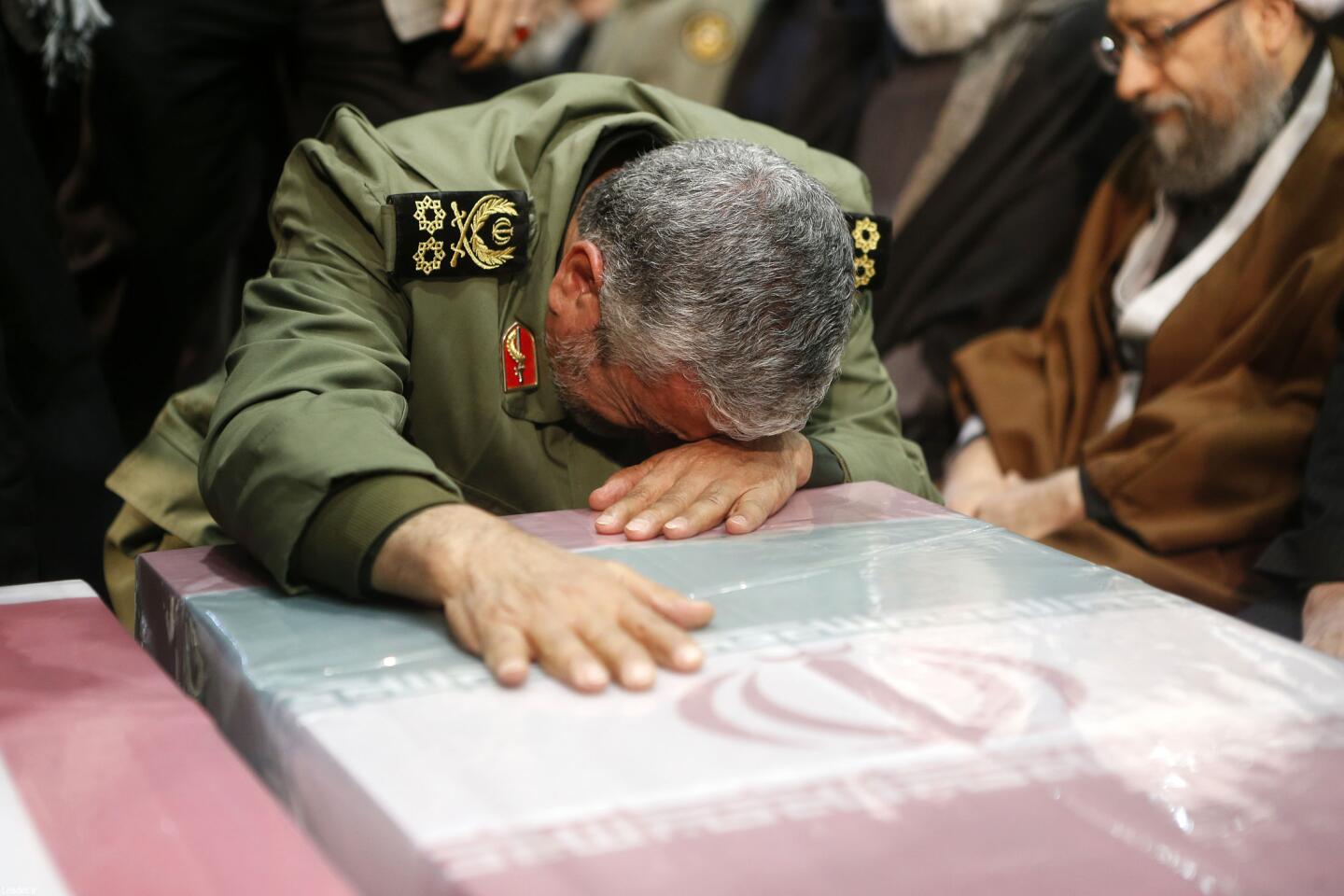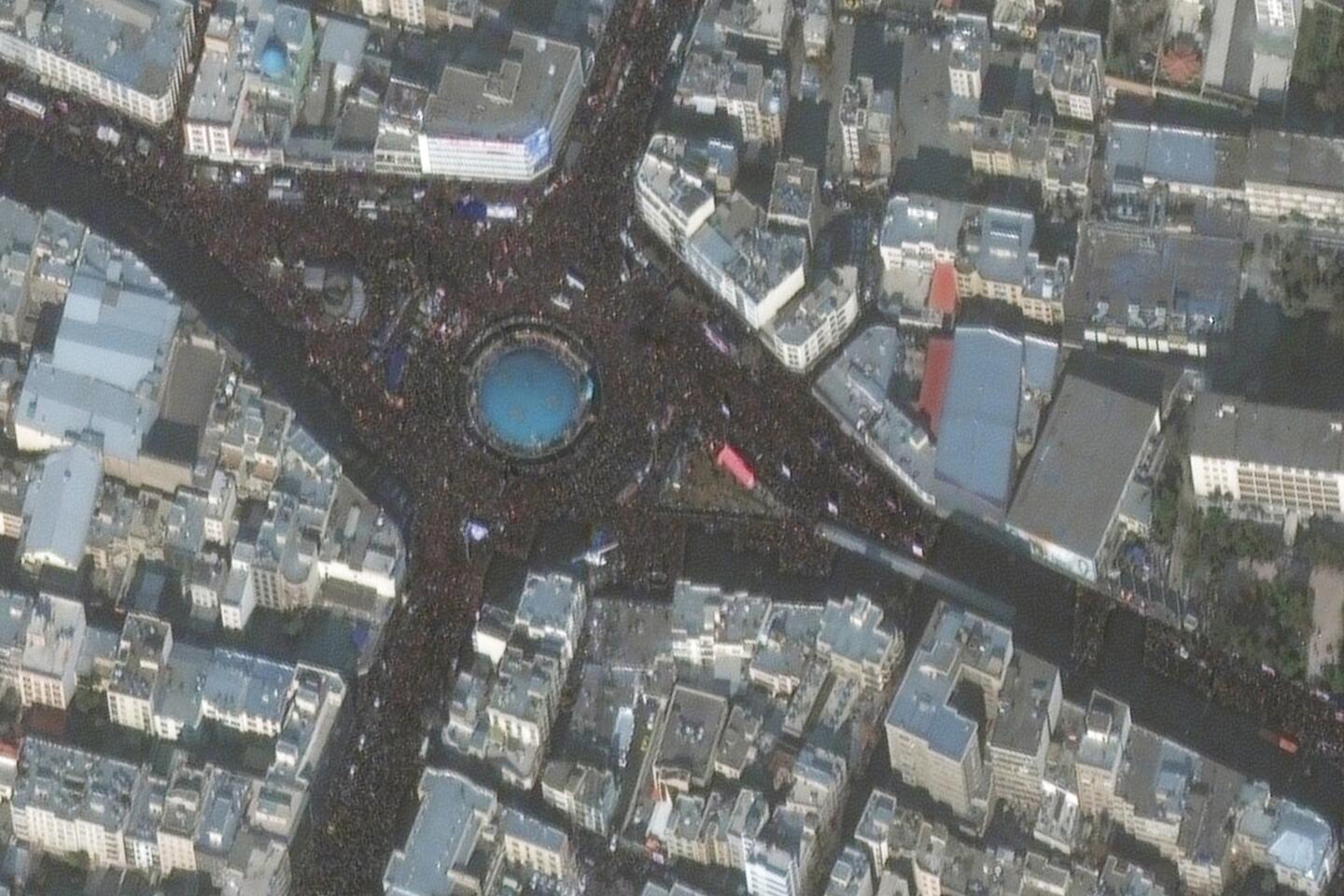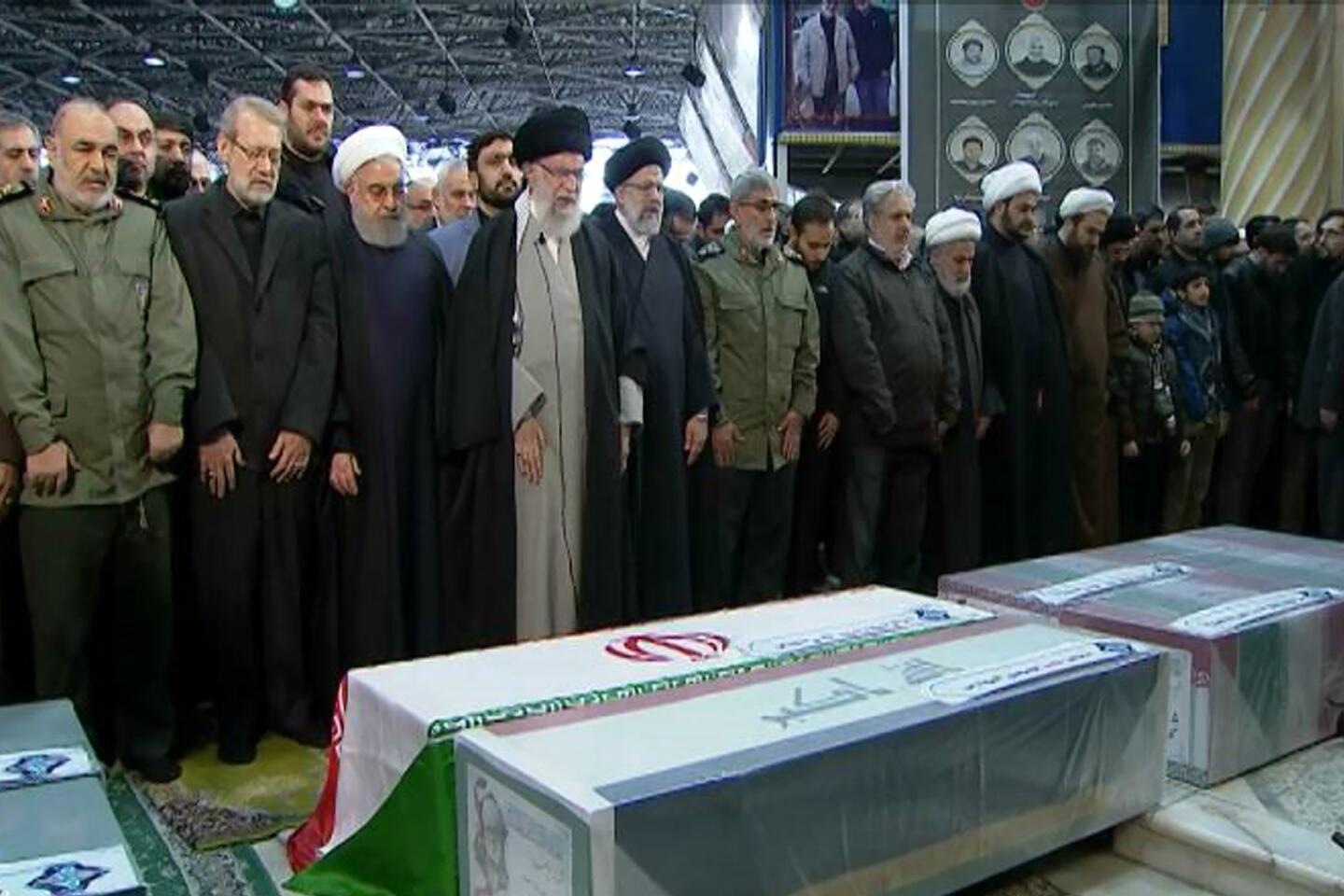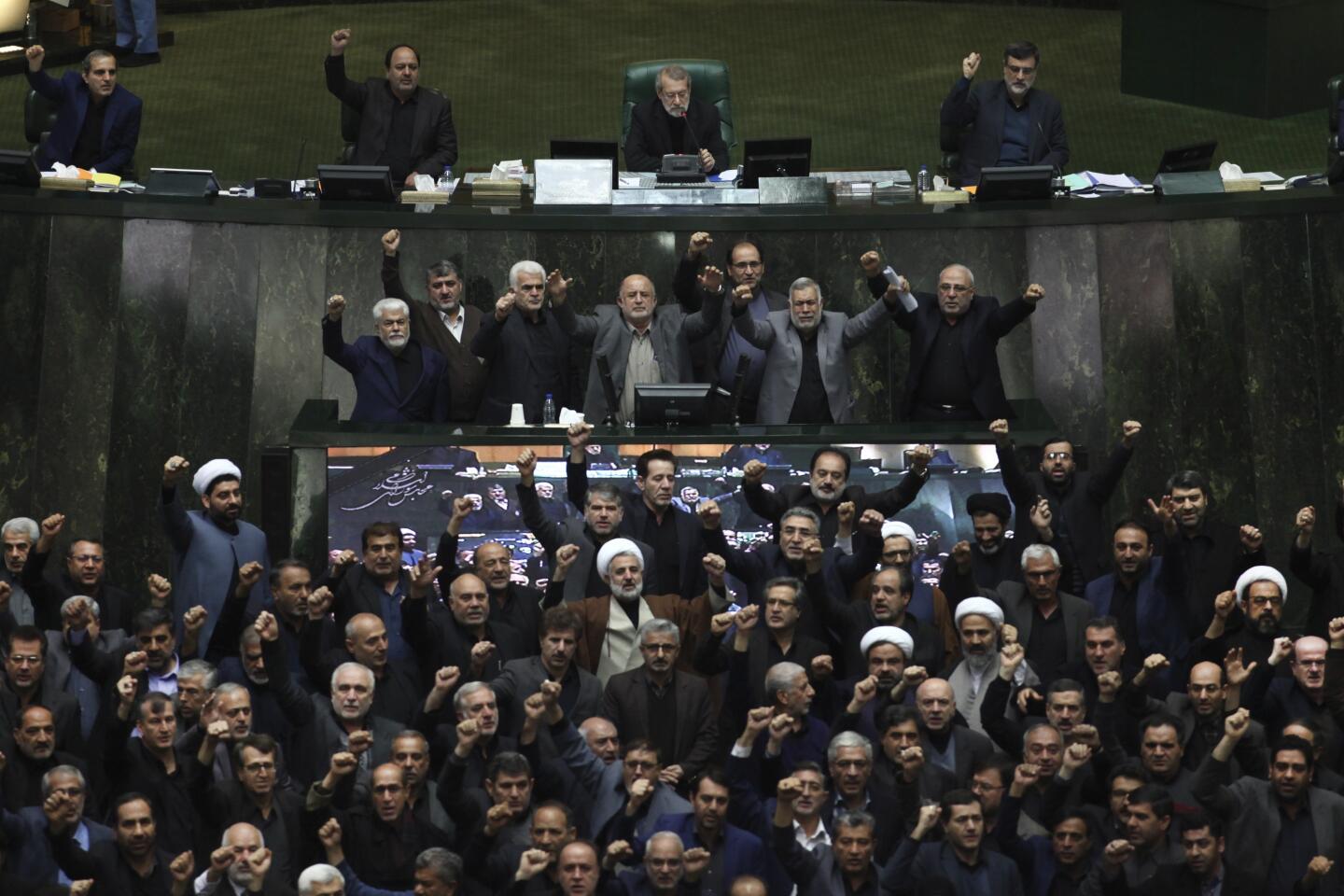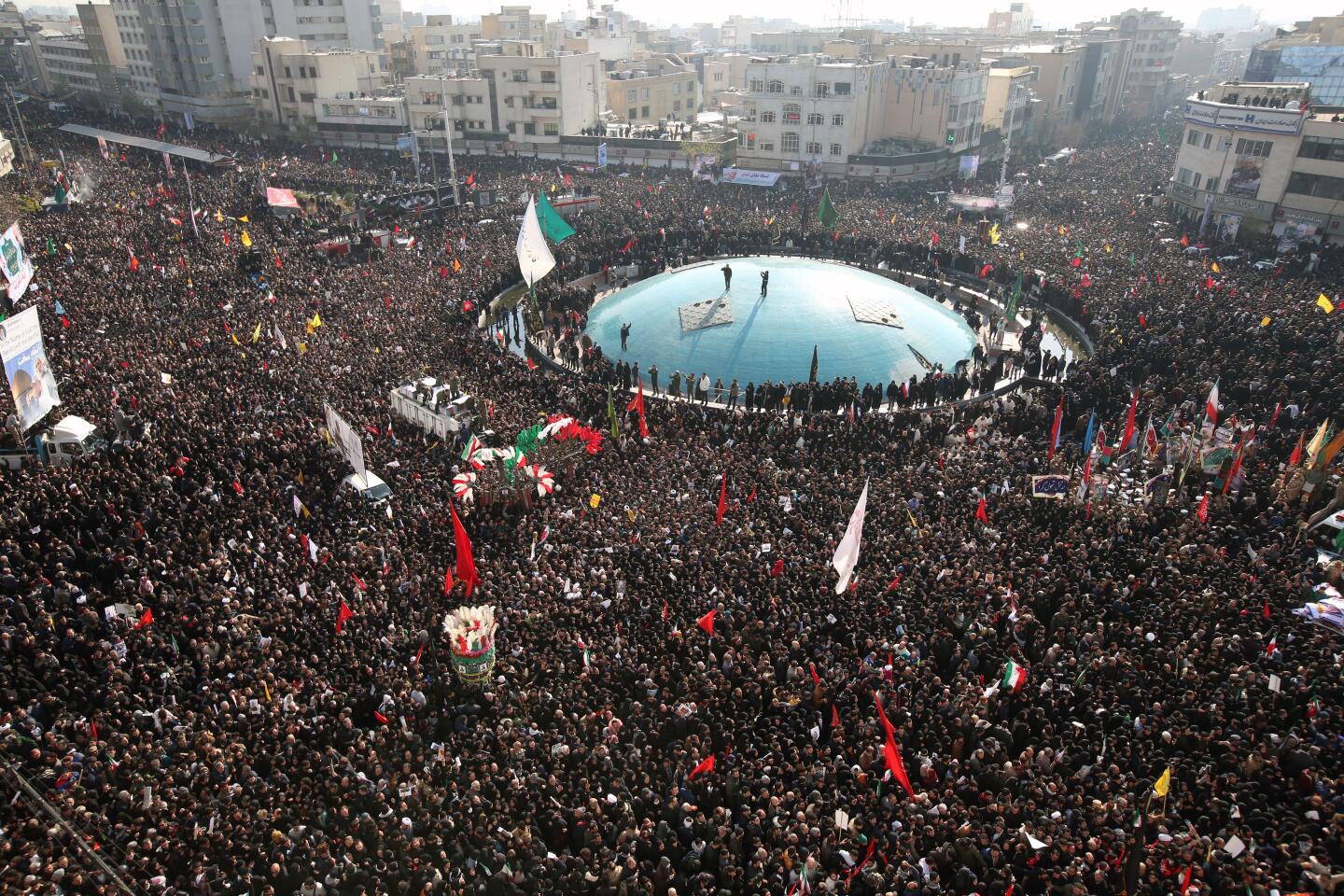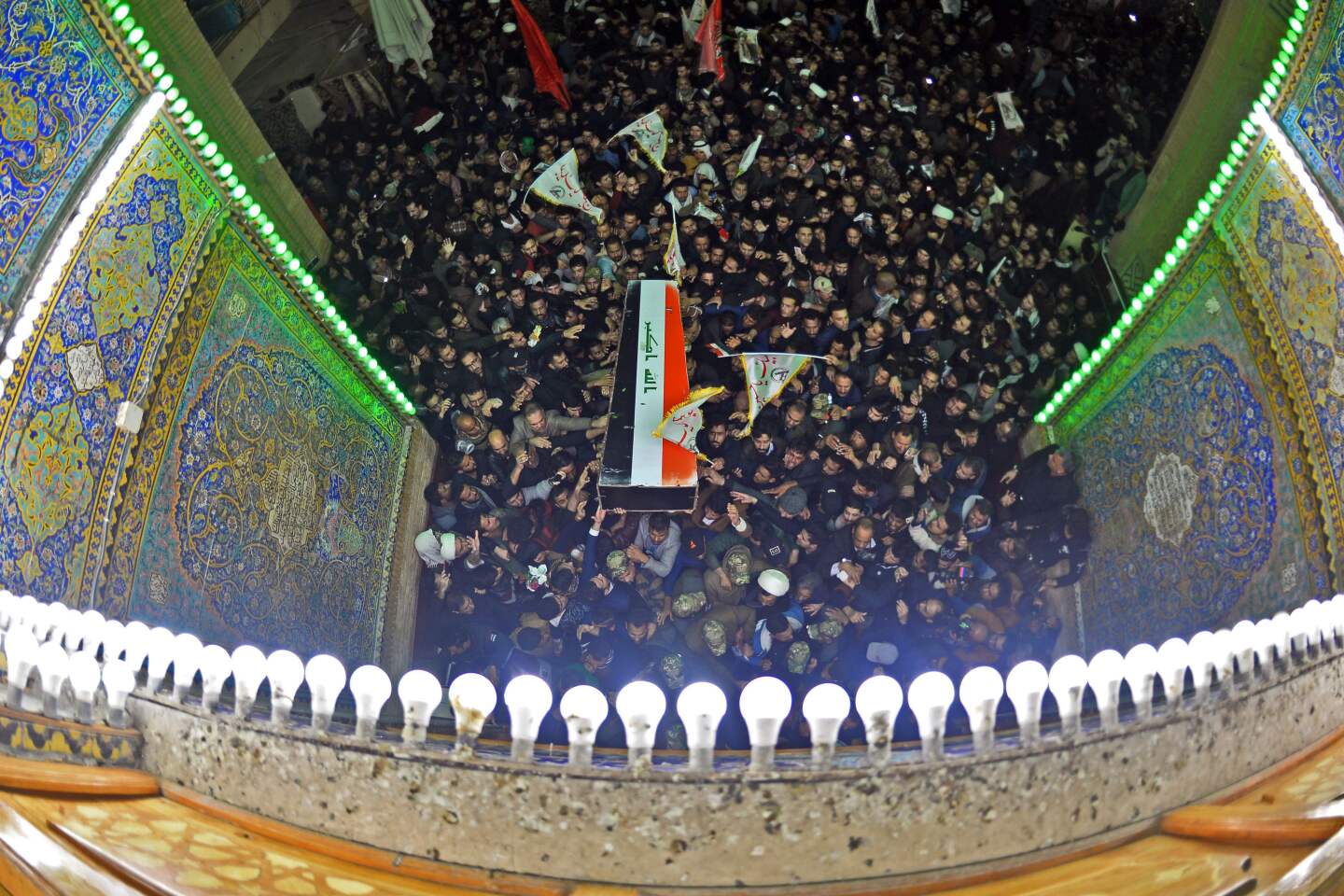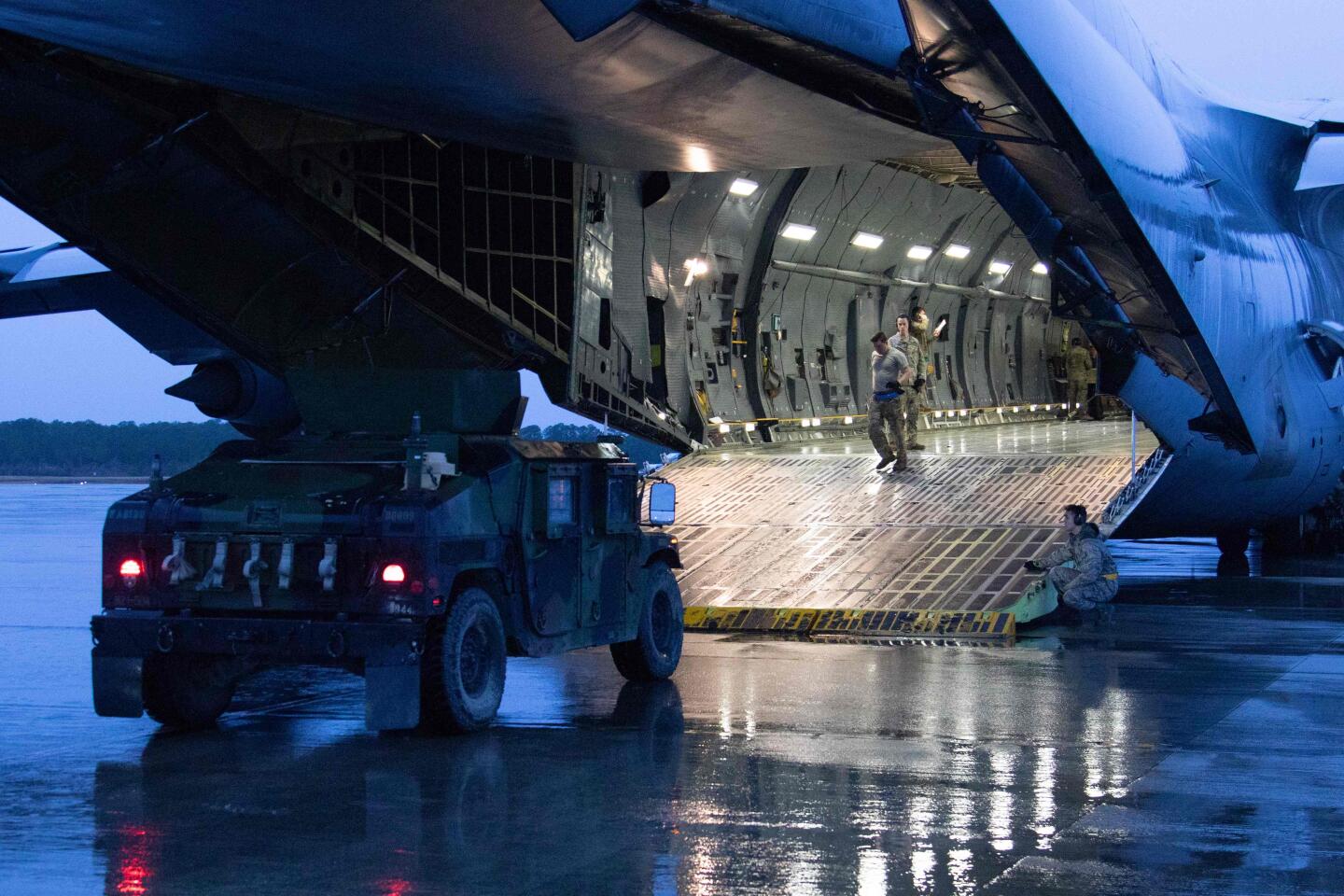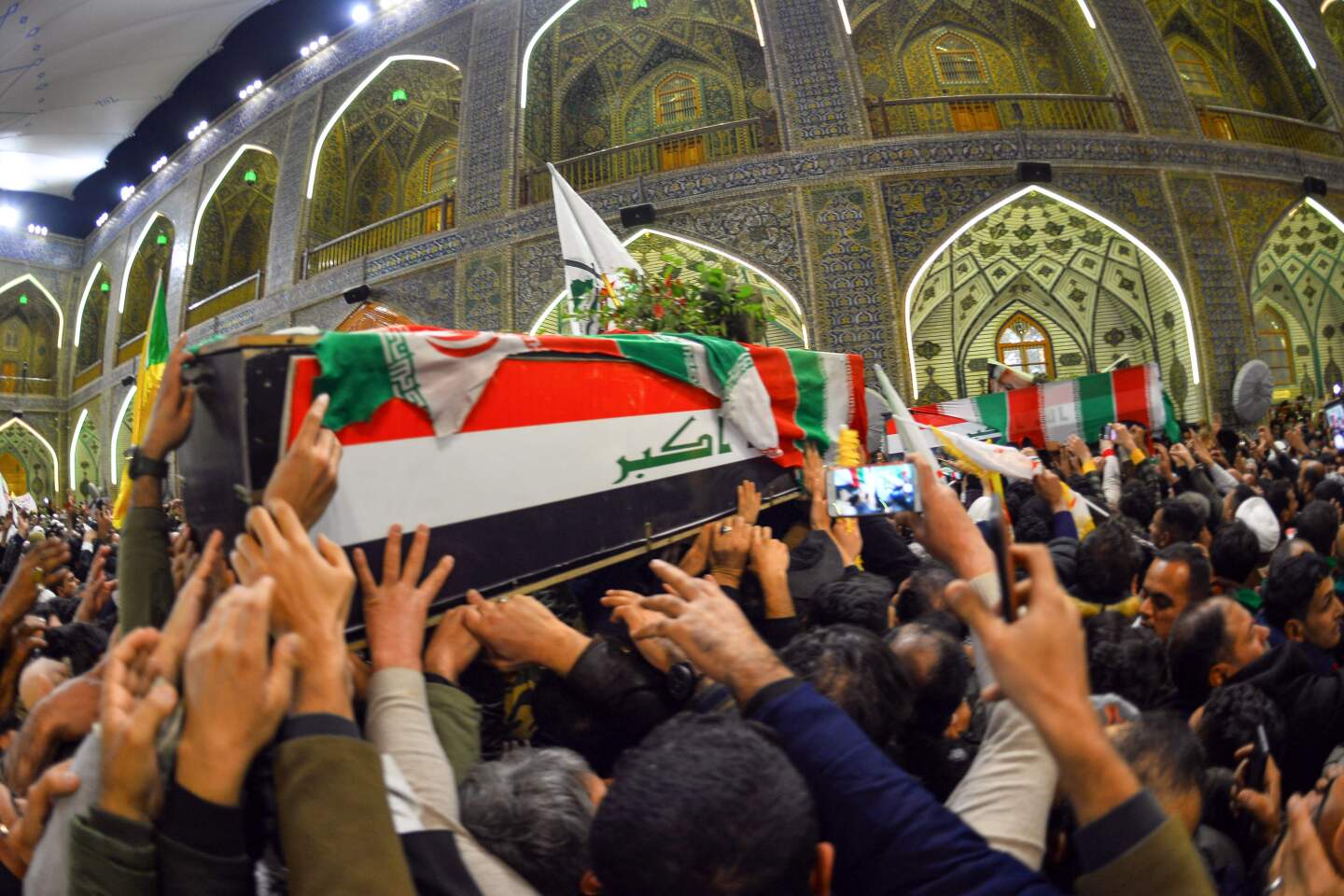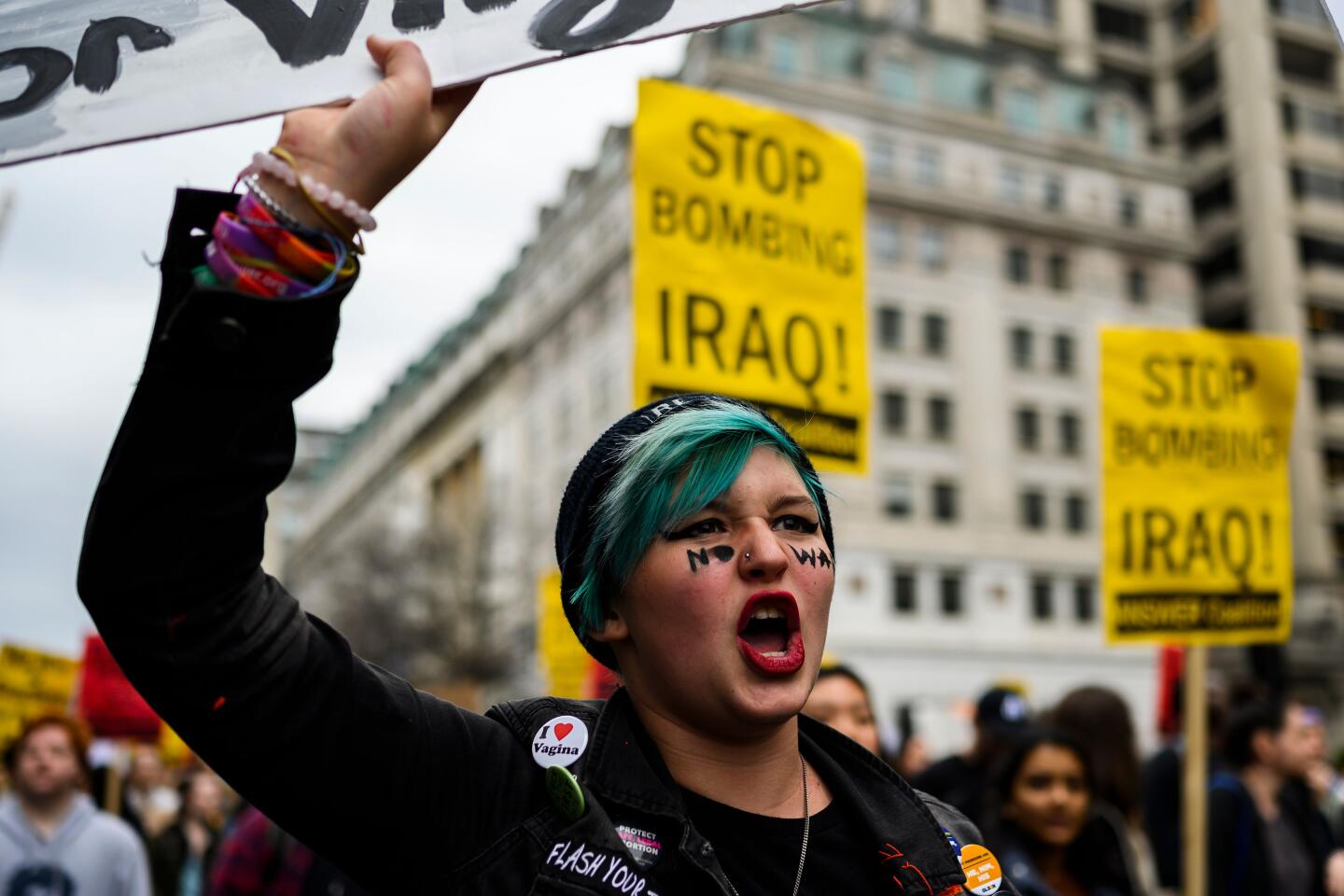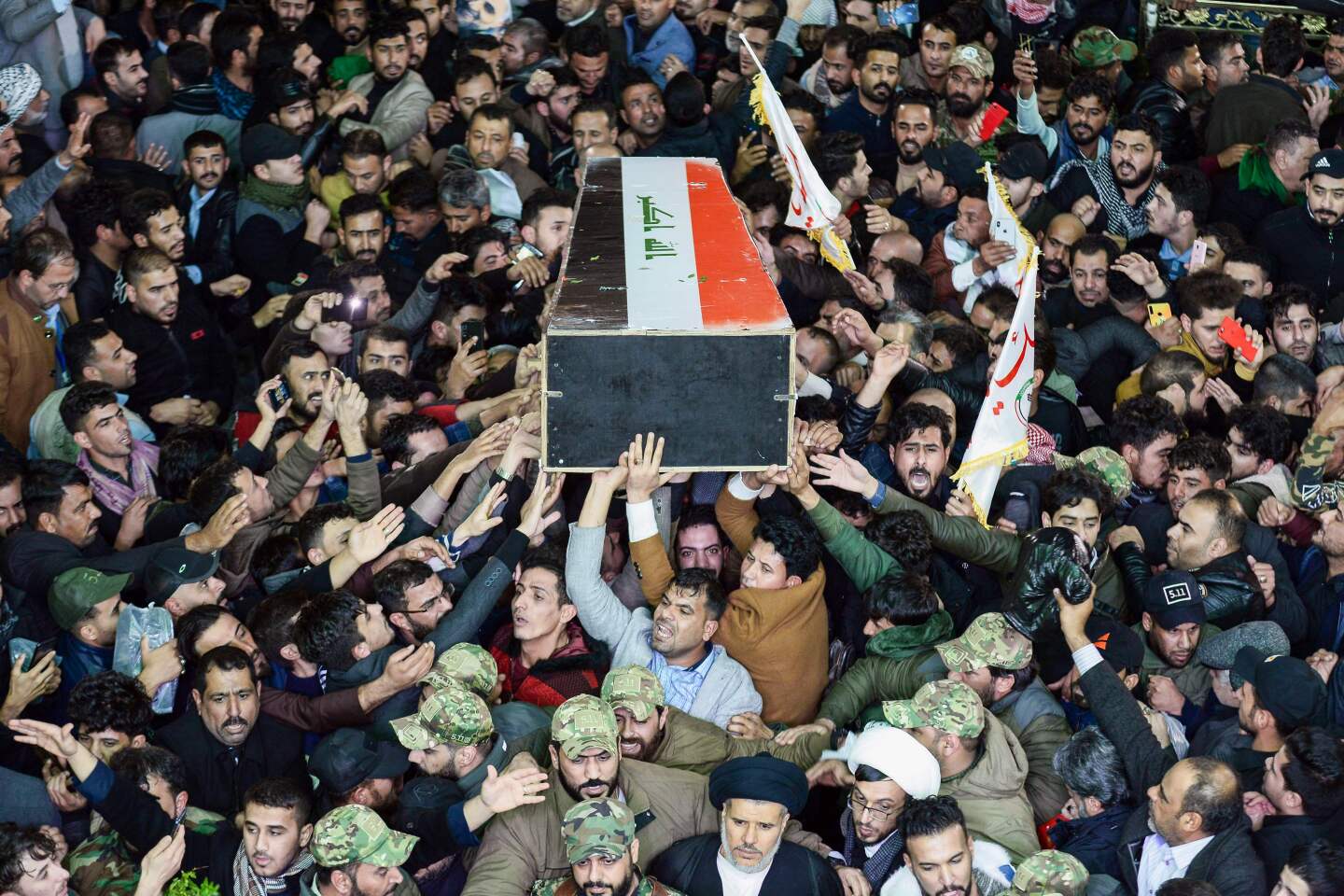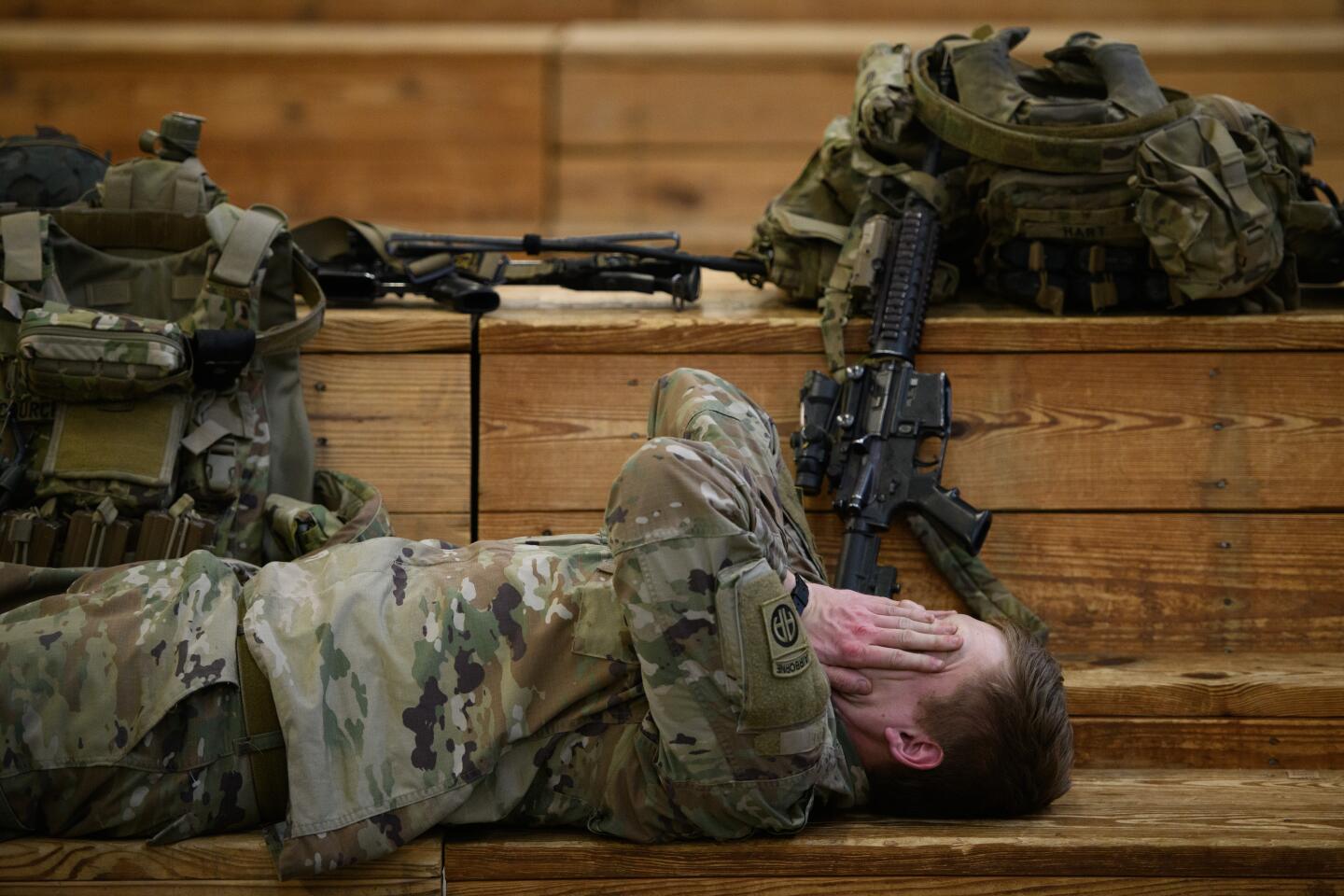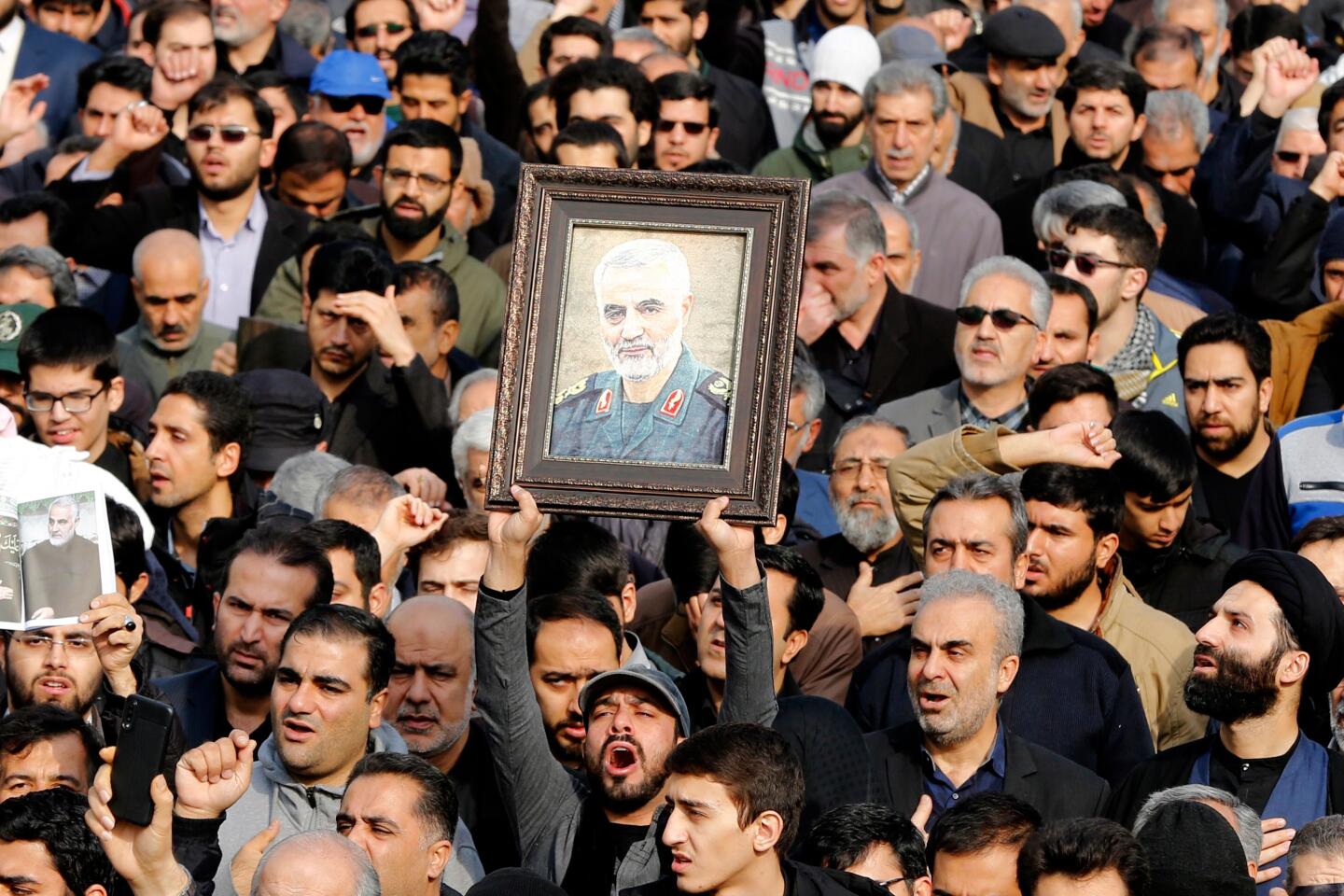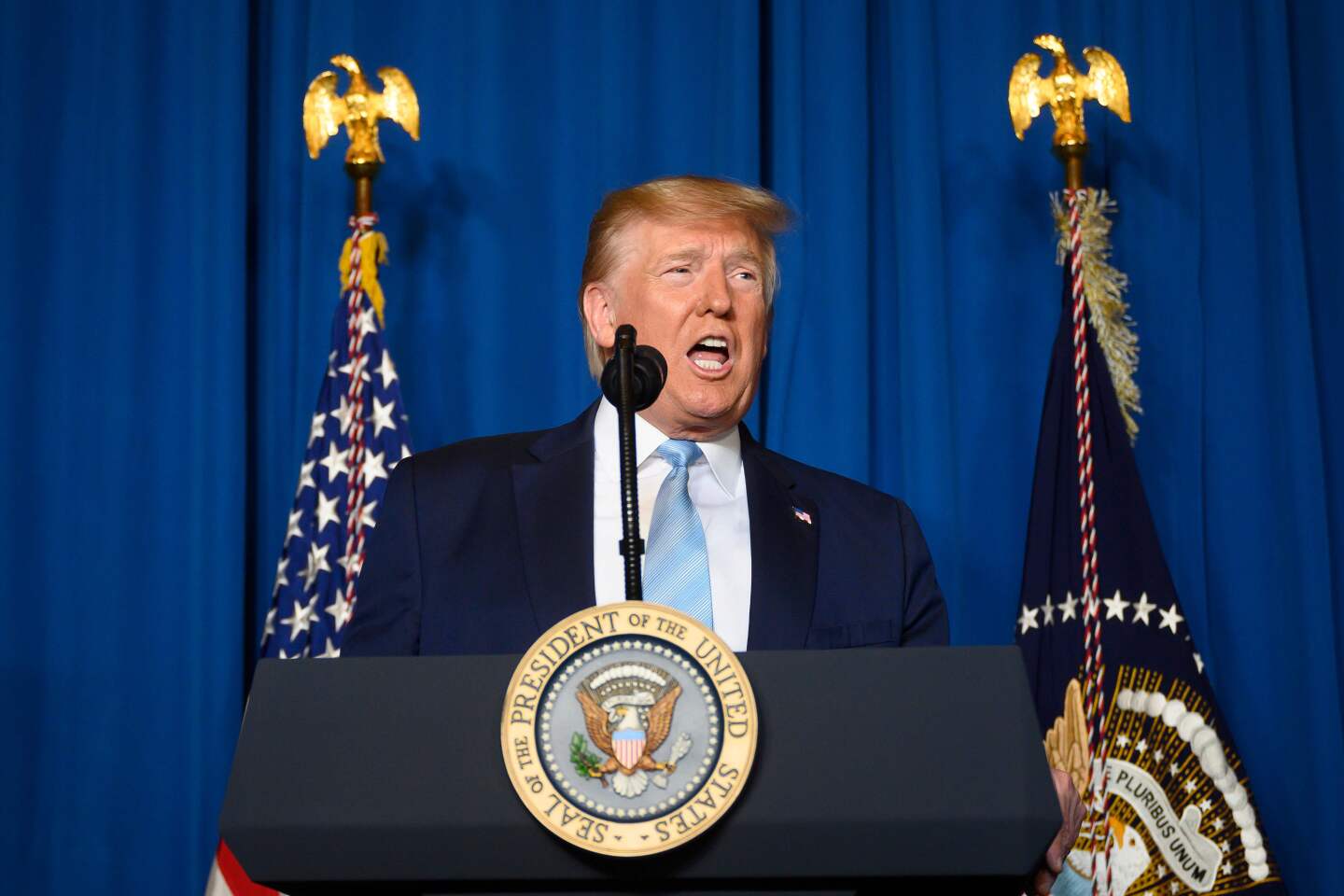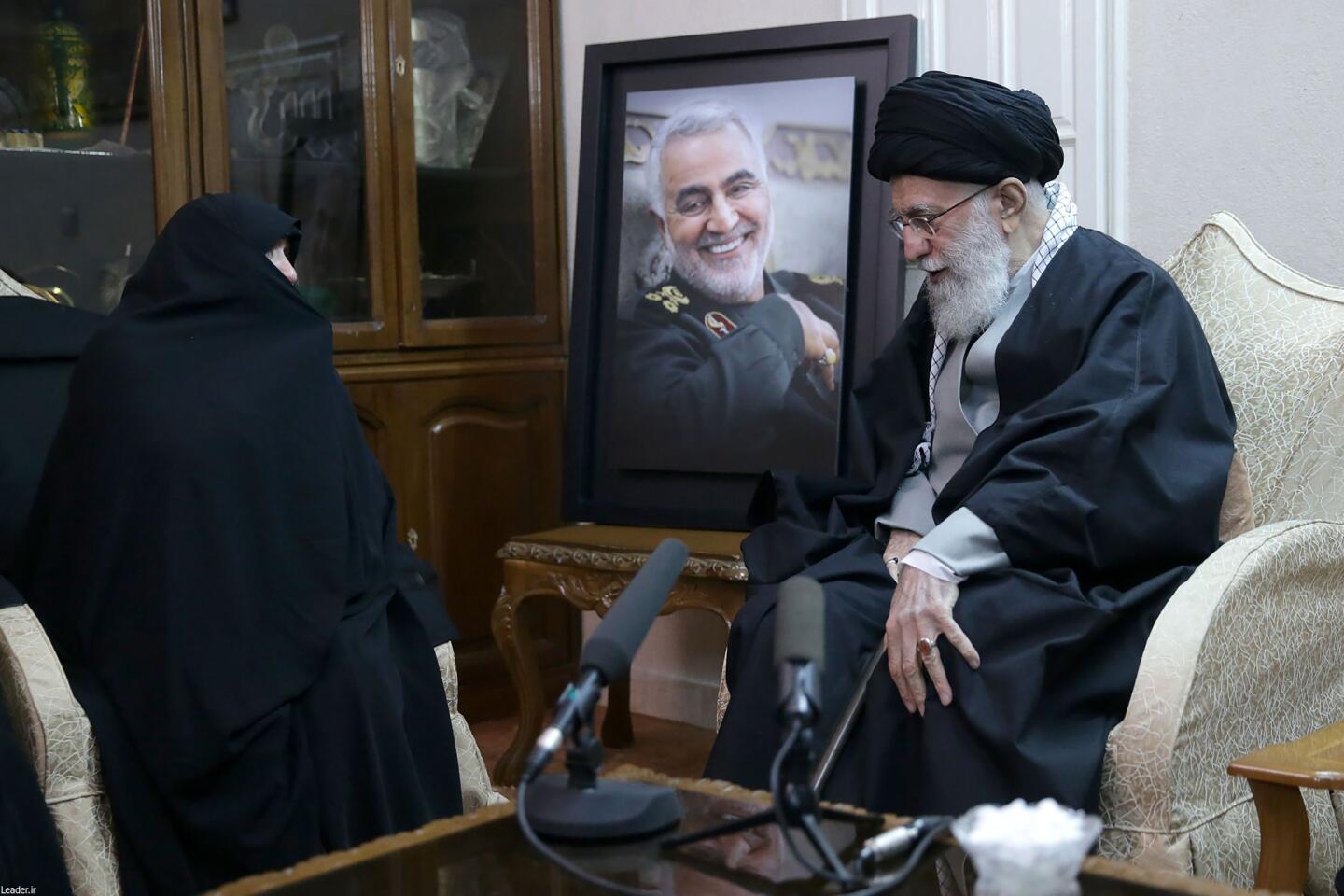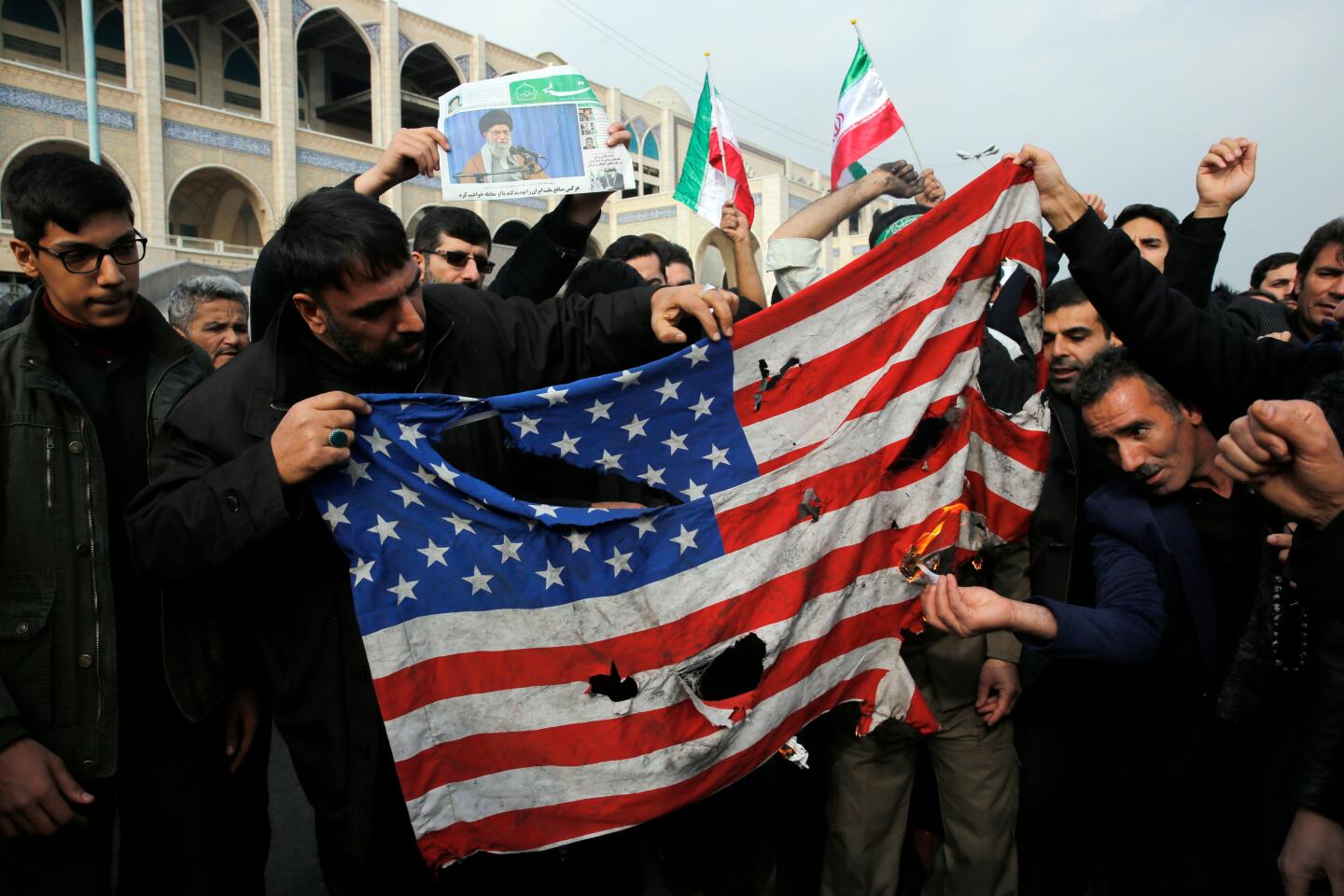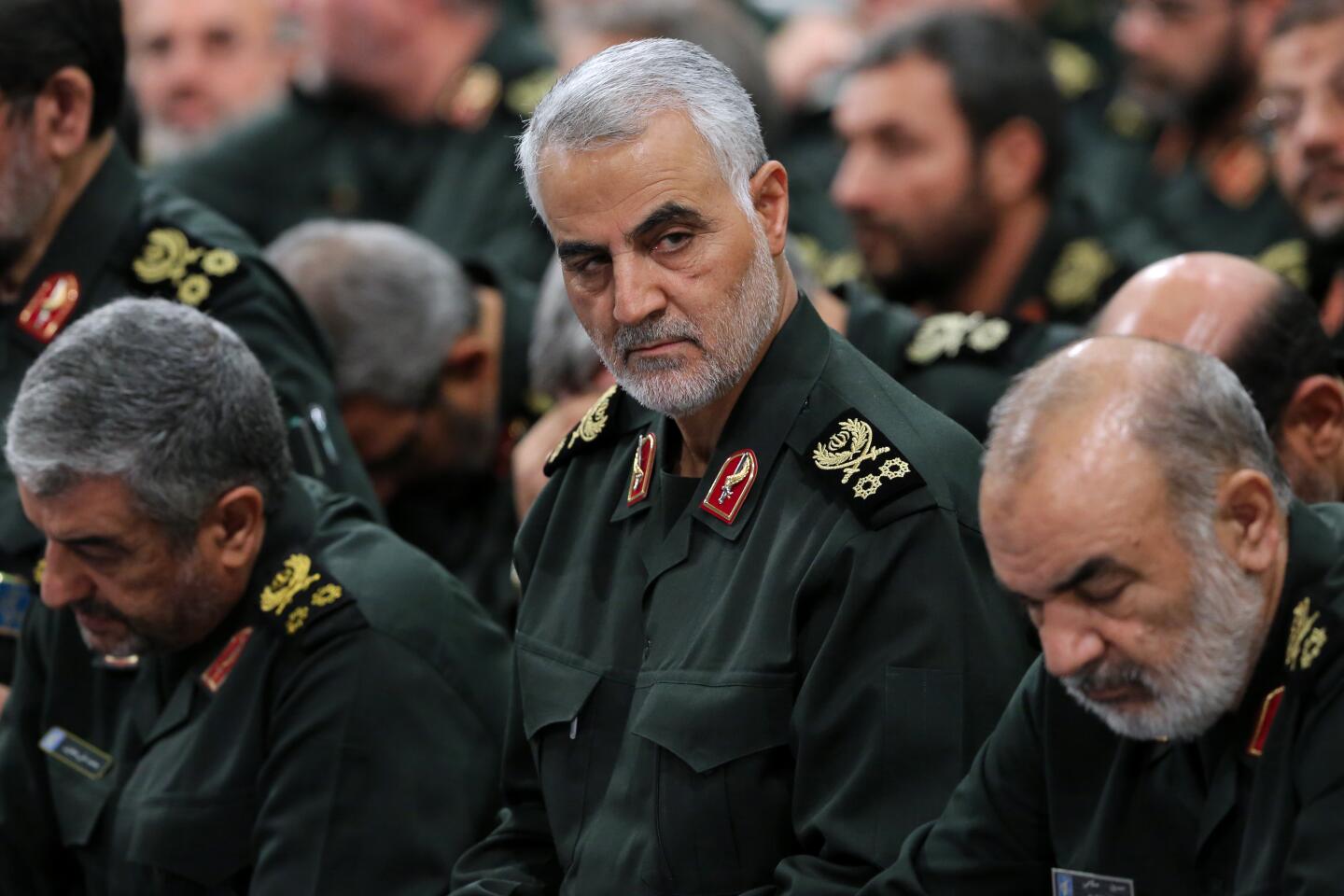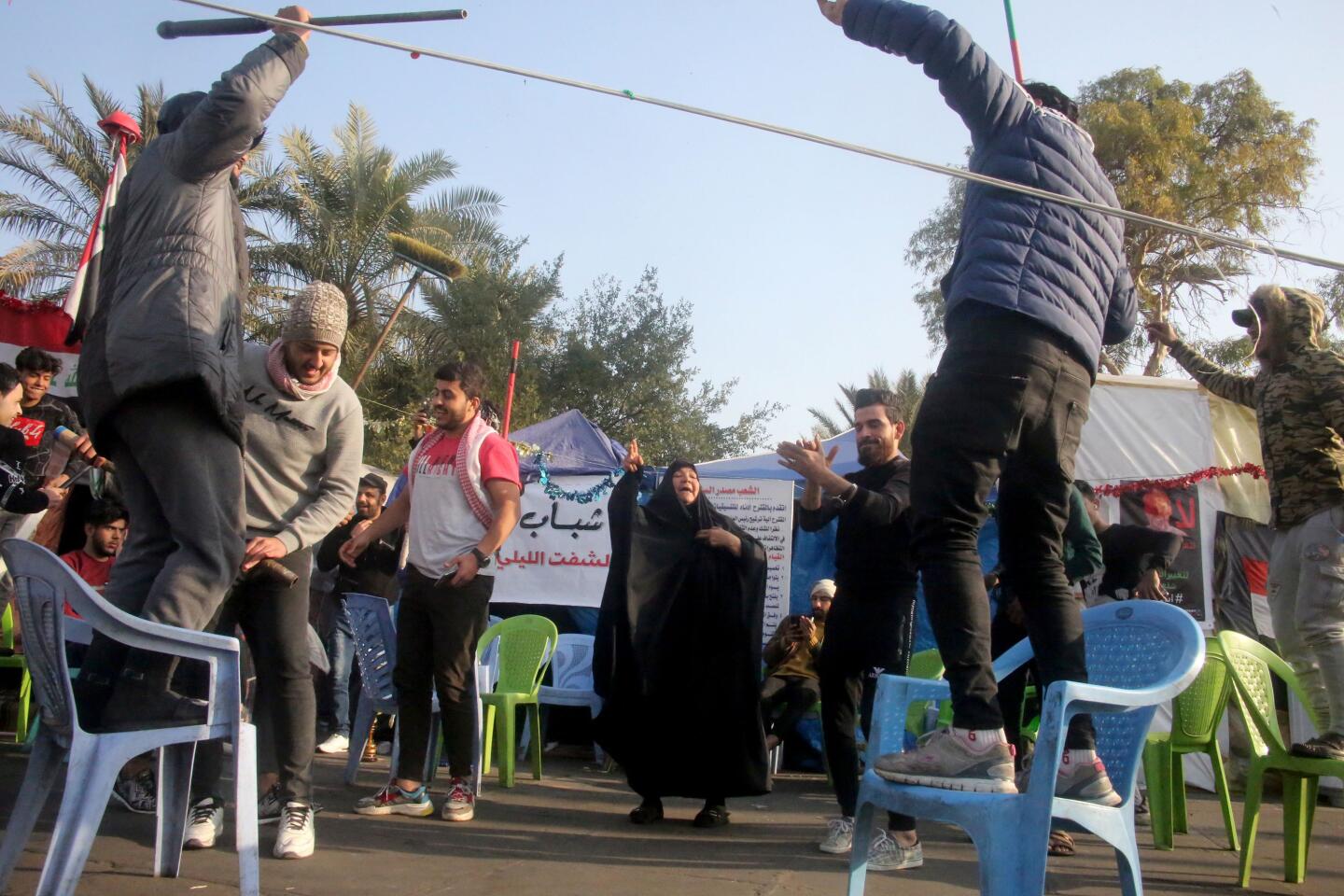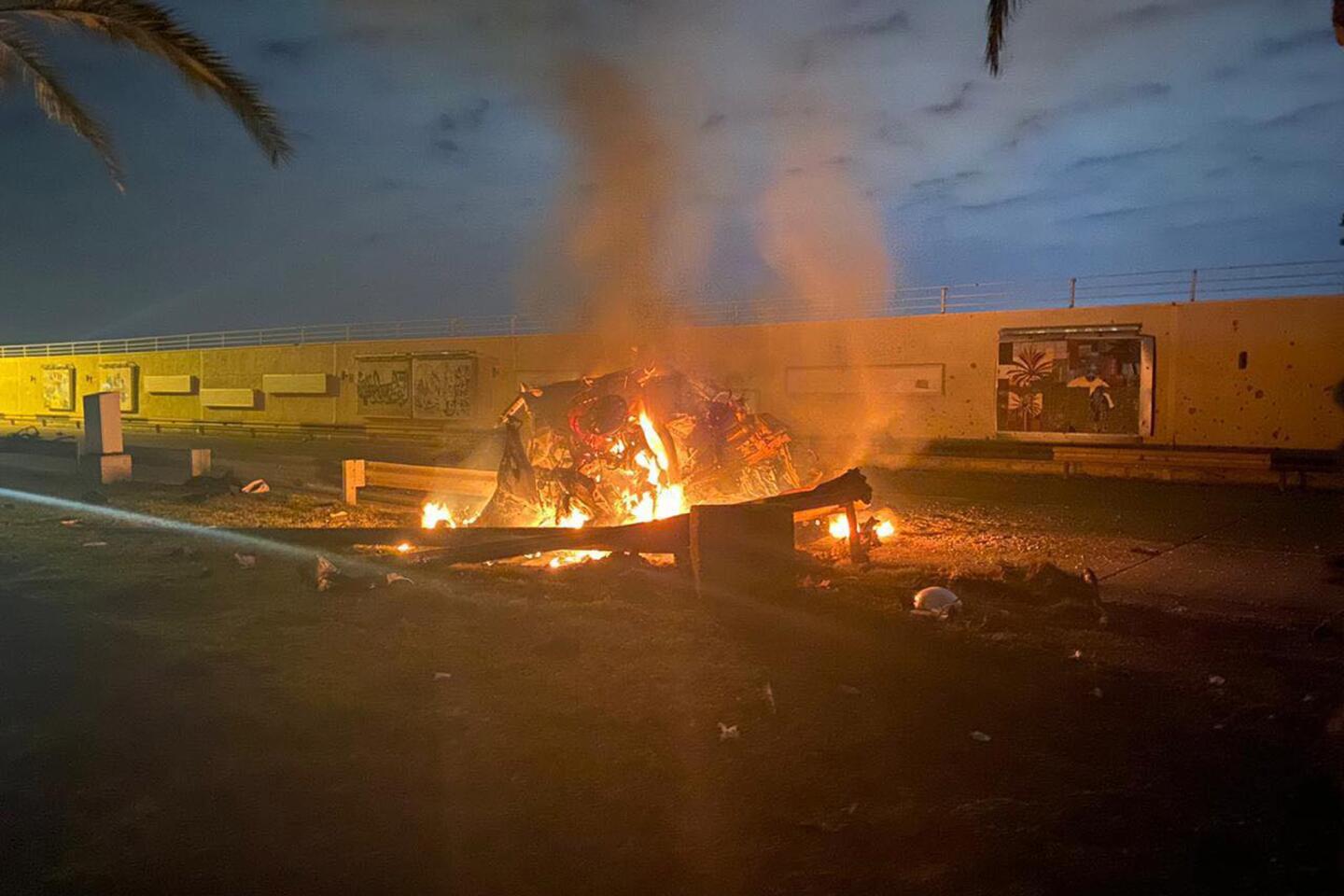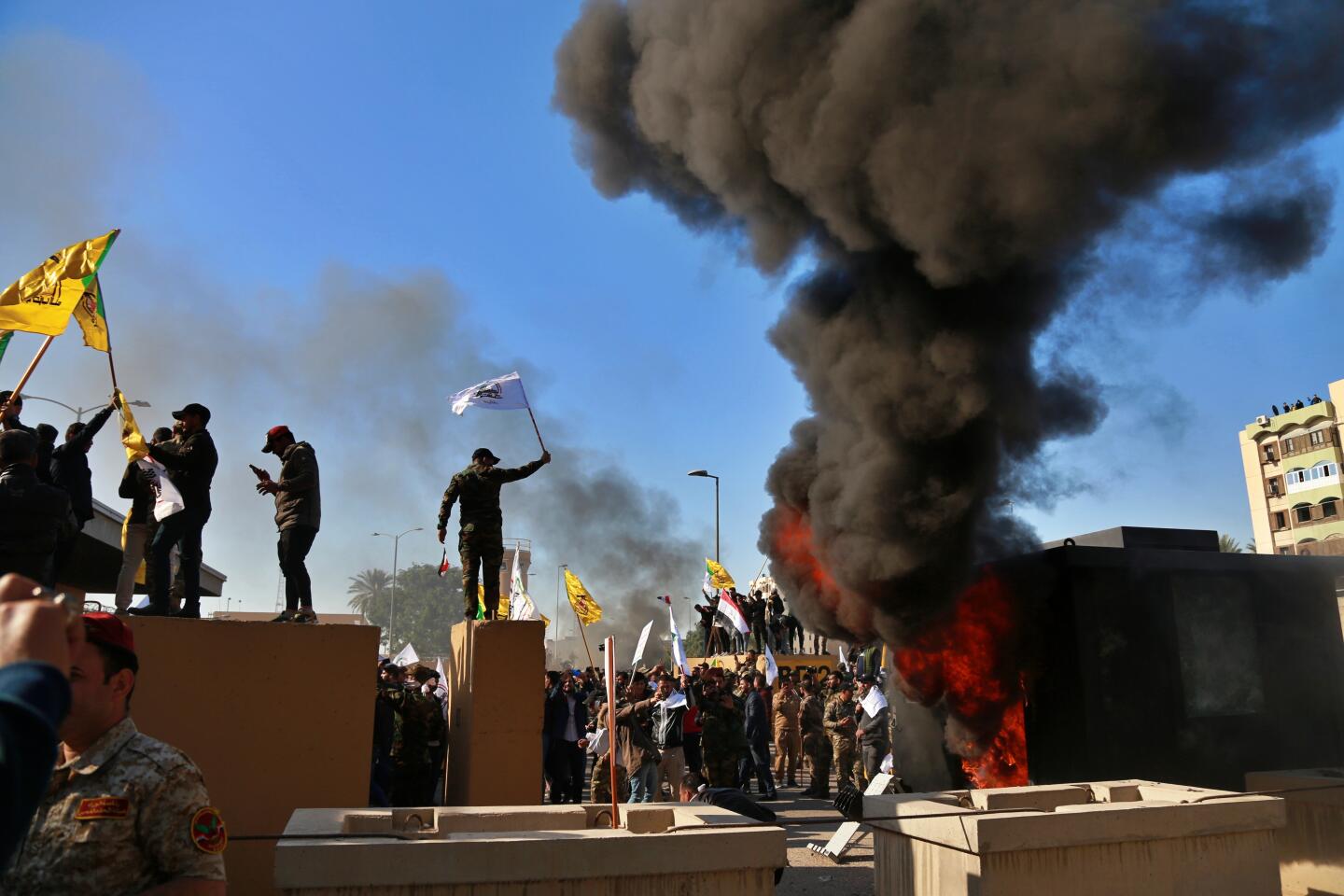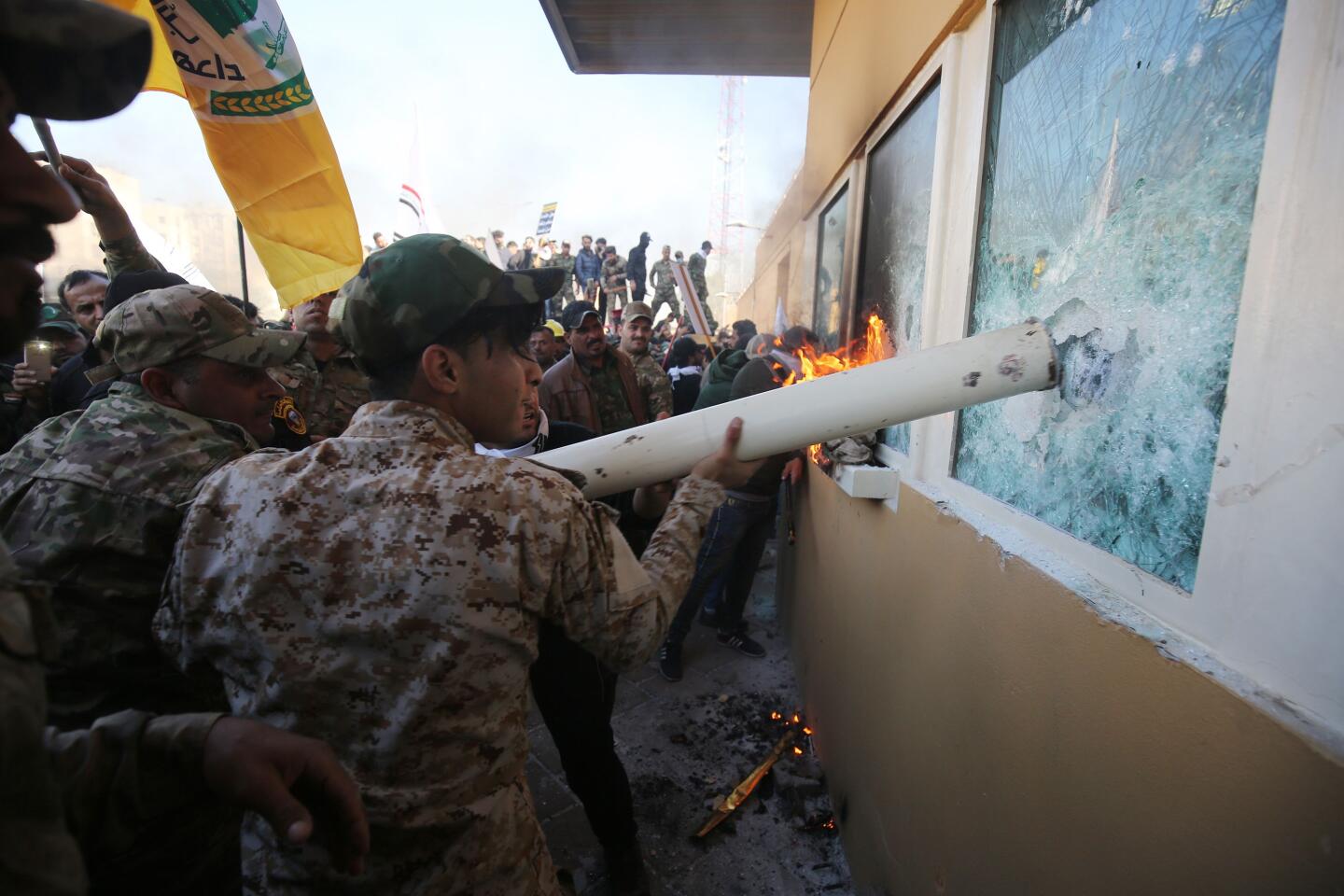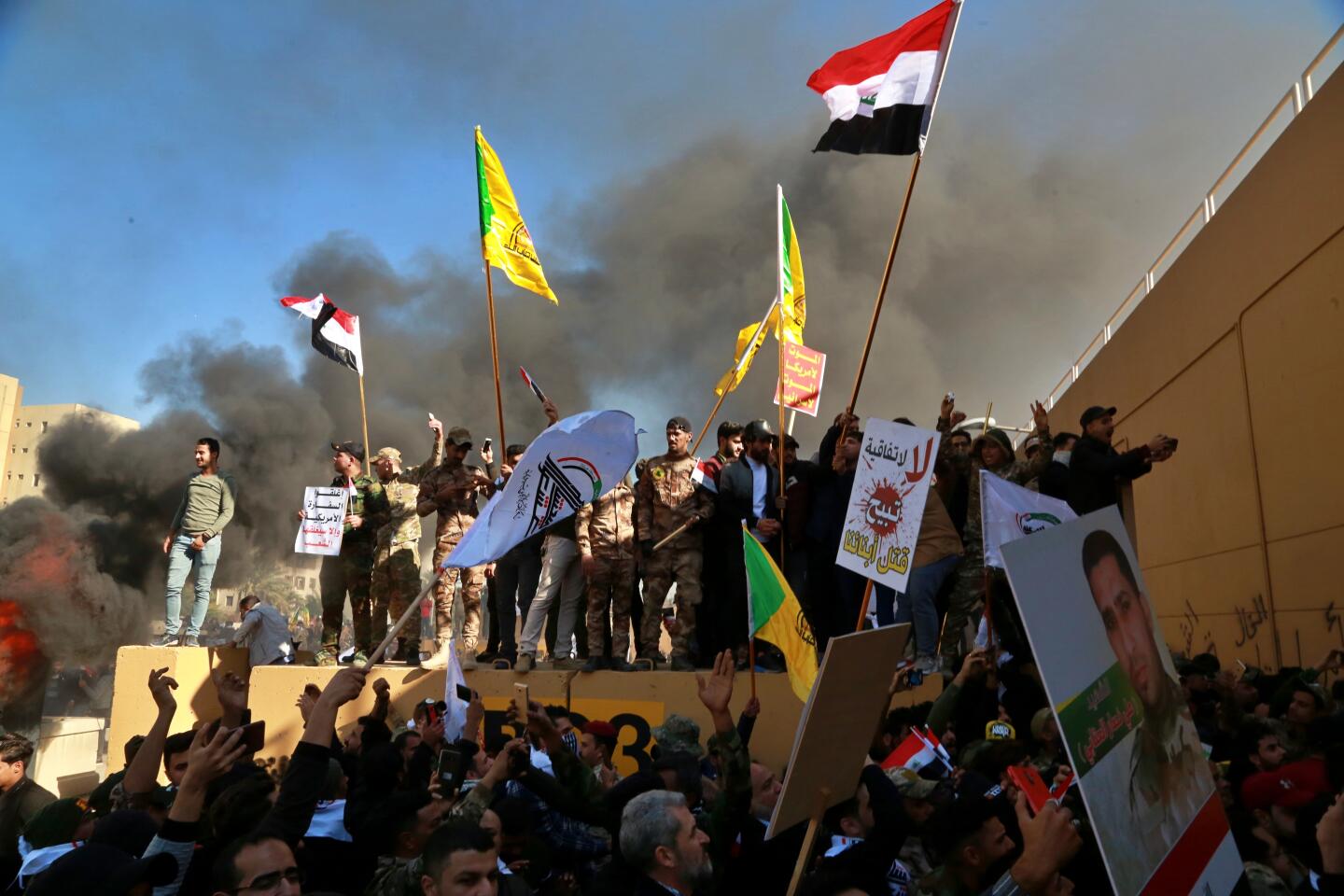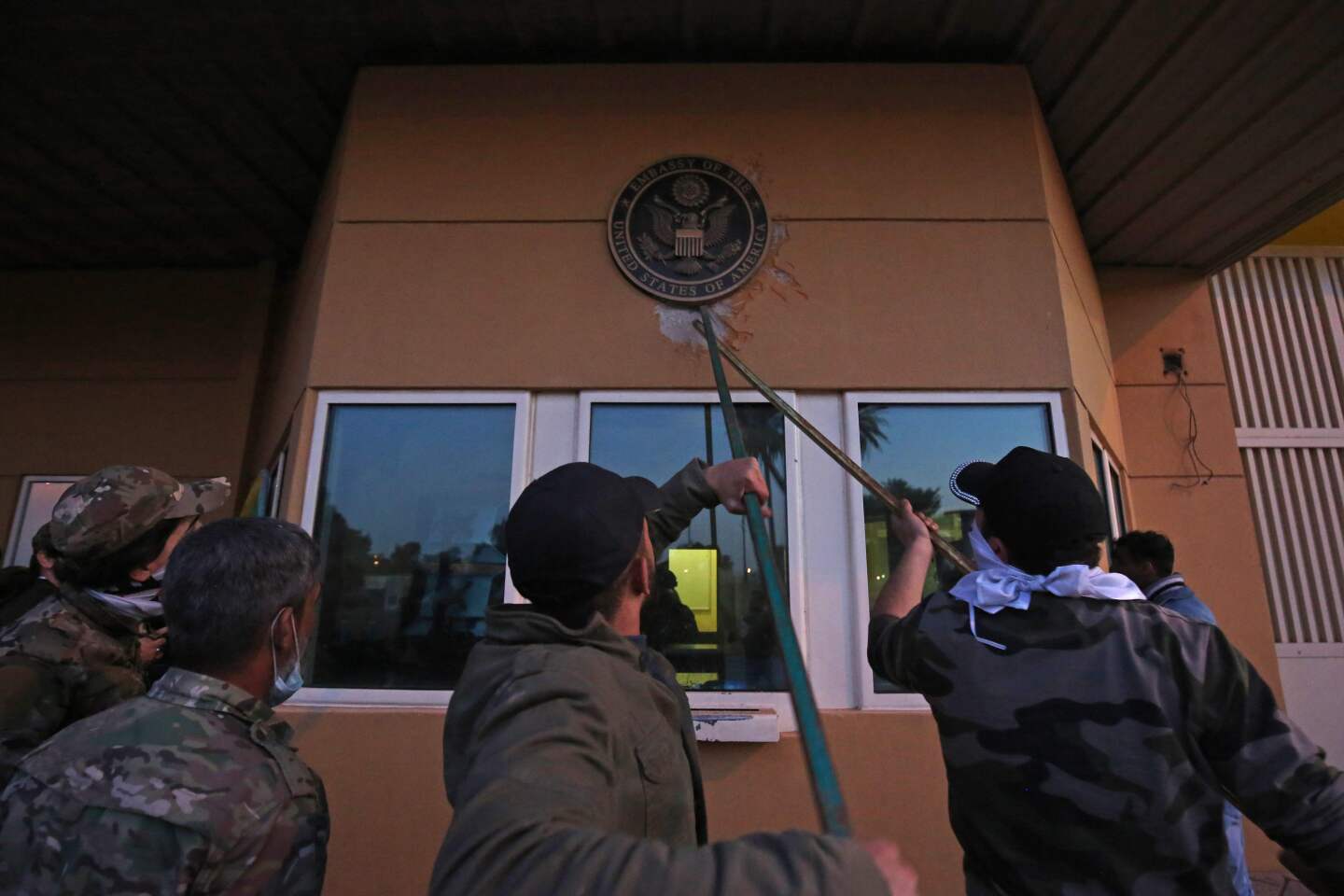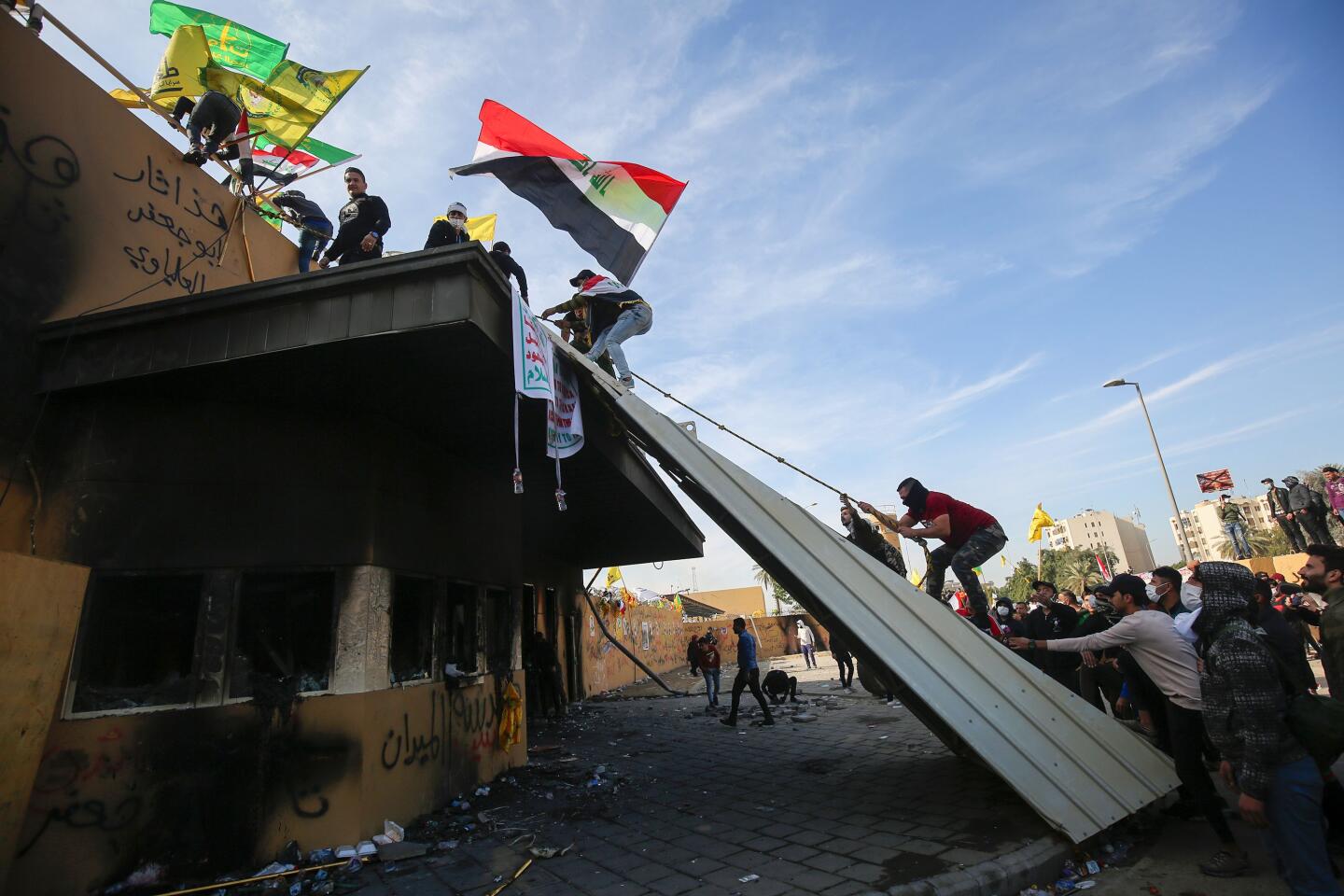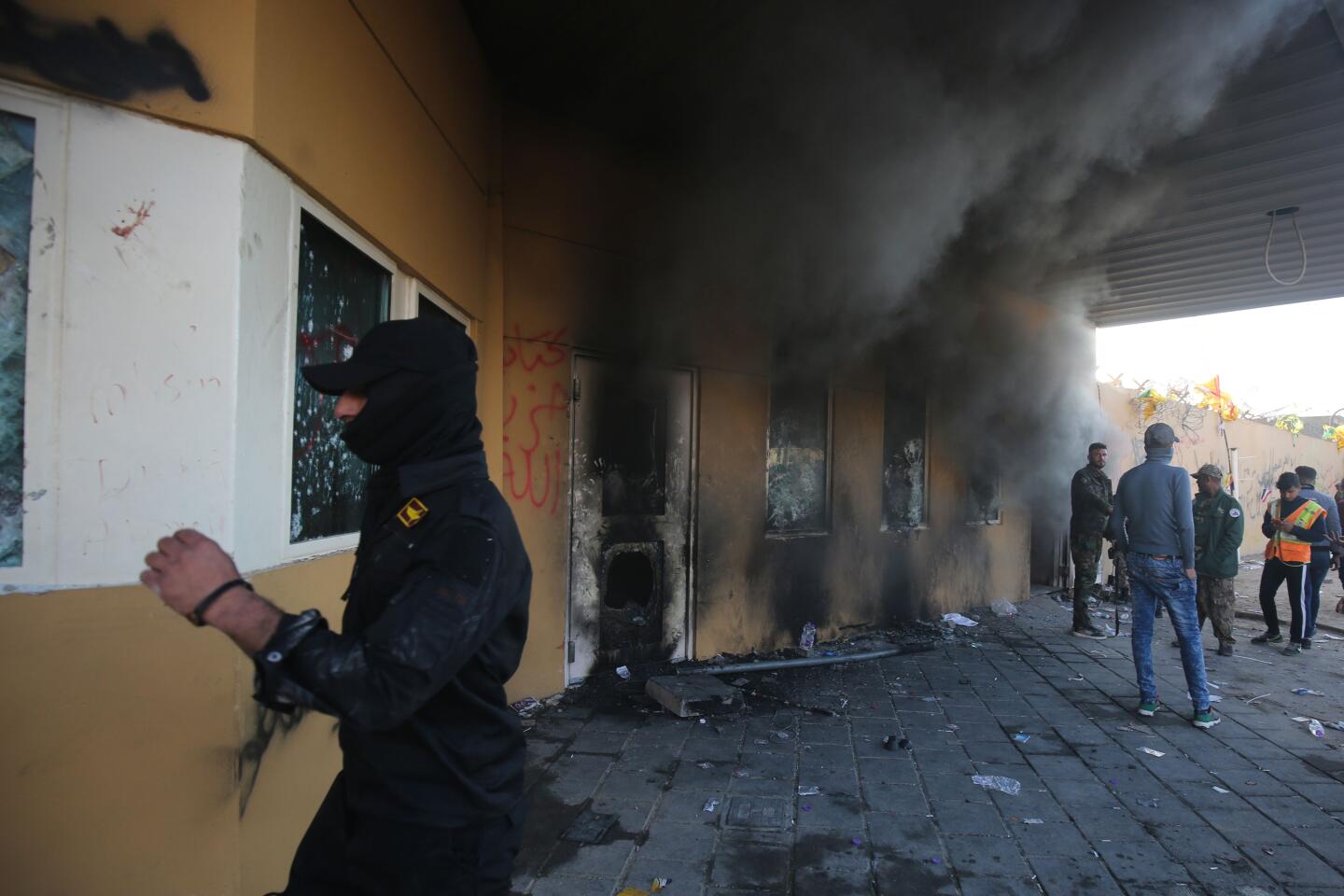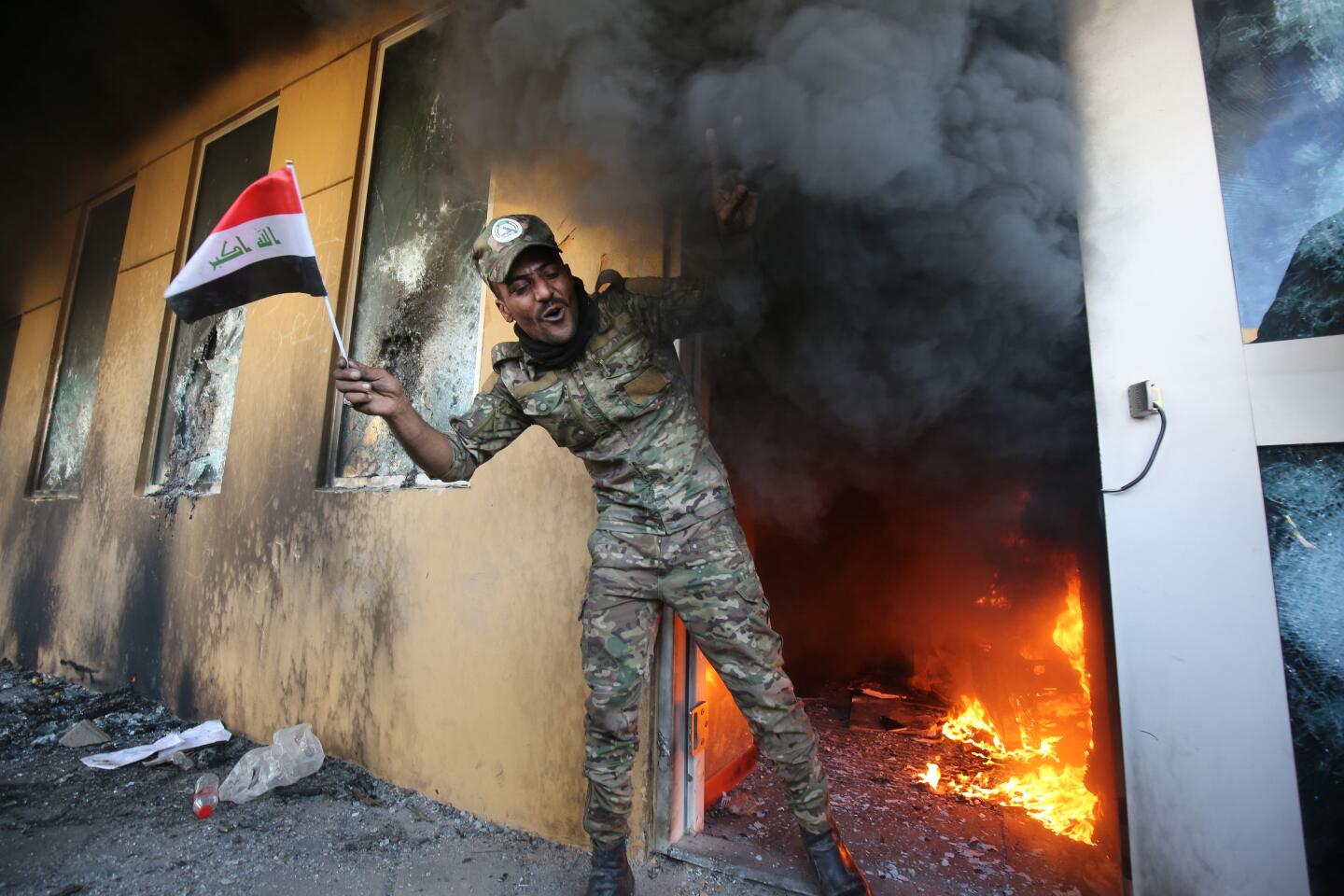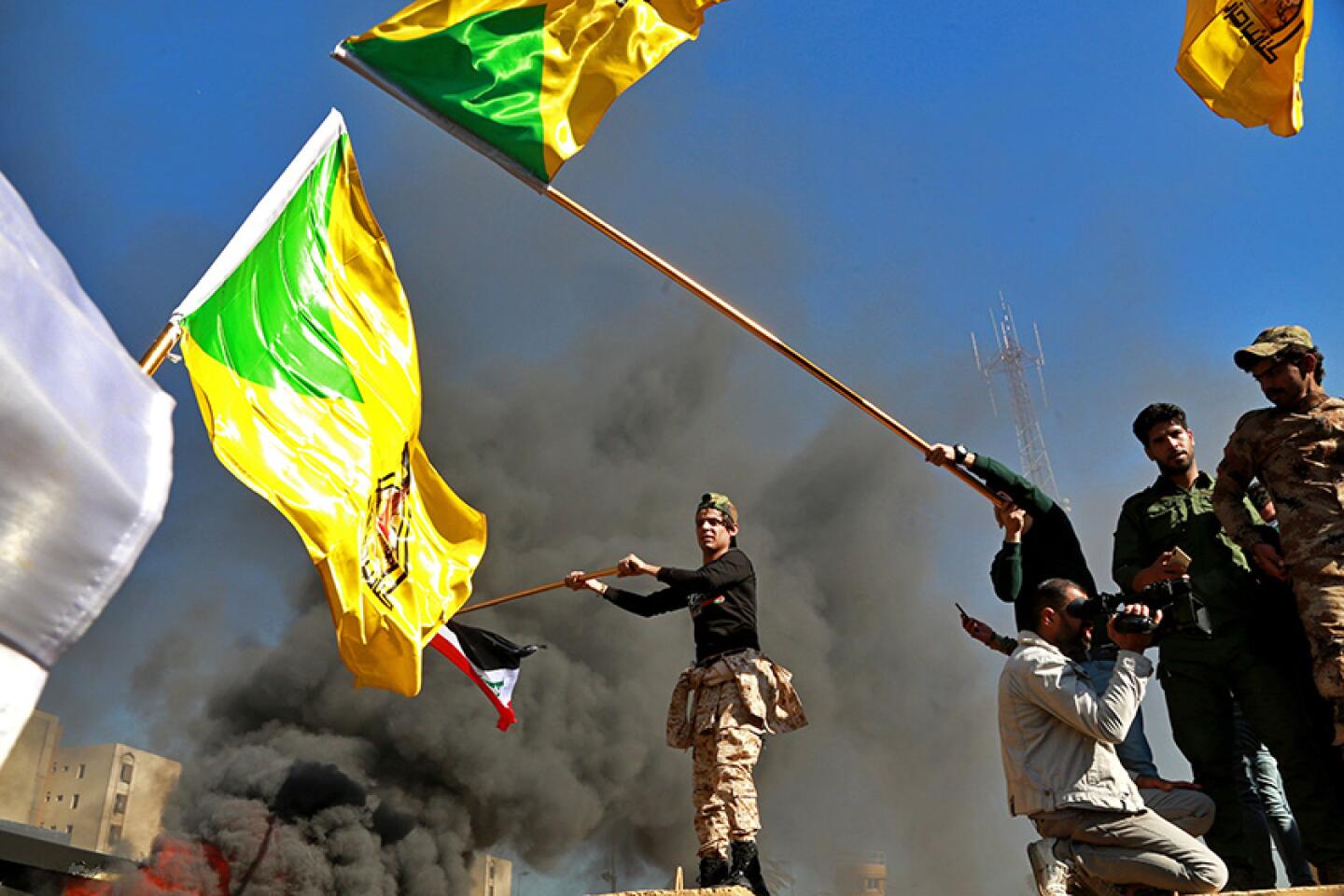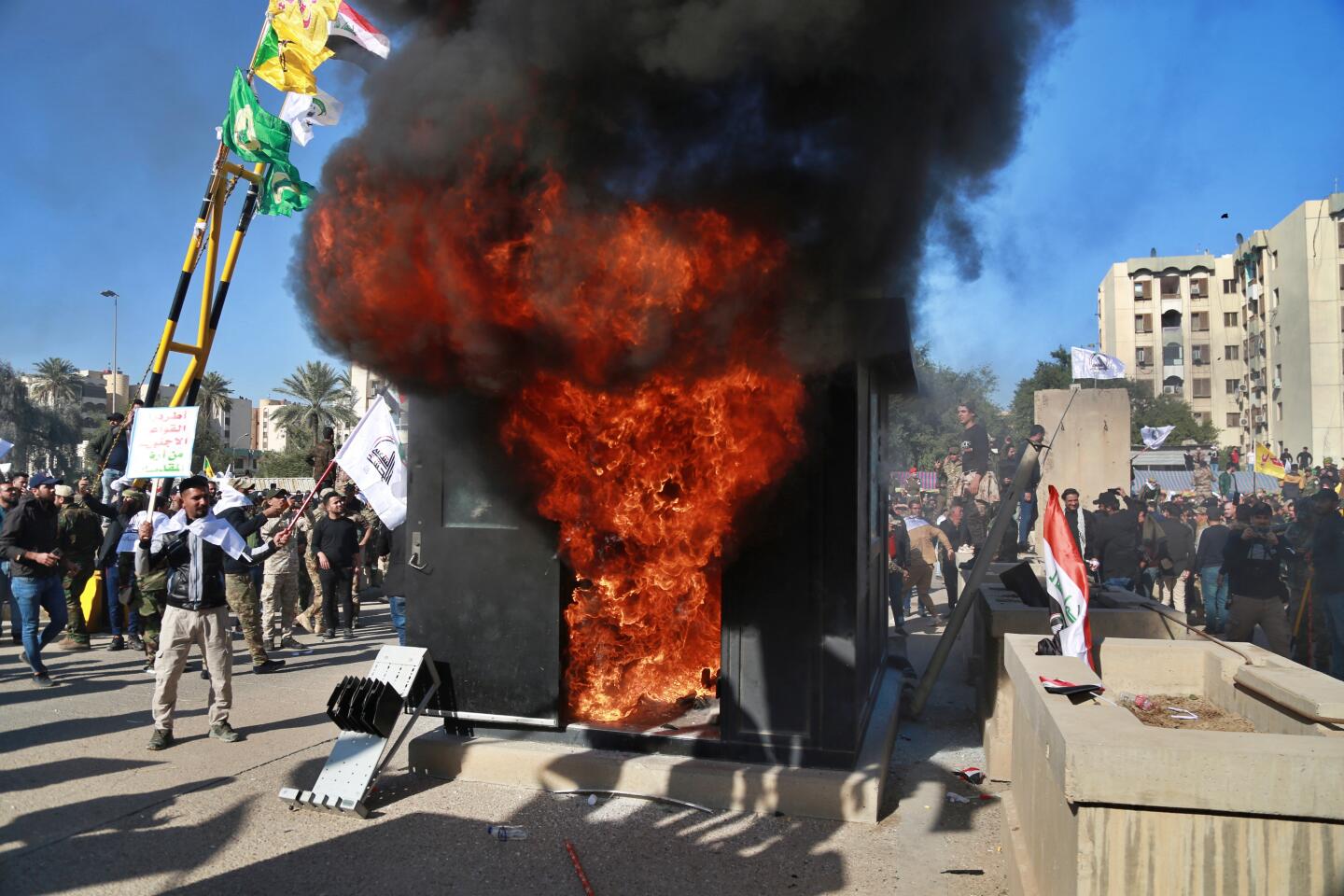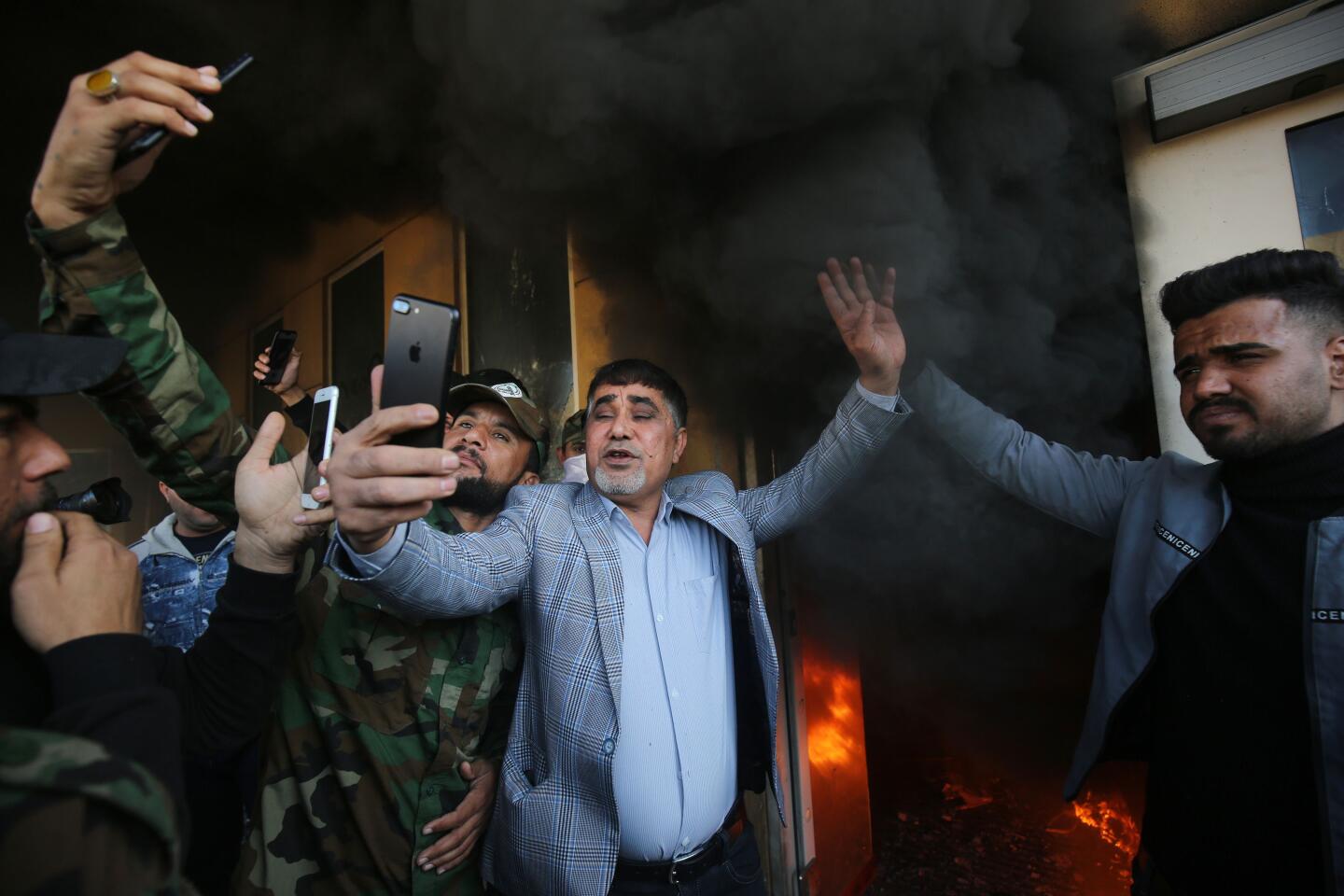Repercussions mount over U.S. strike, with Iran nuclear deal pullback and Iraq call for U.S. troop pullout
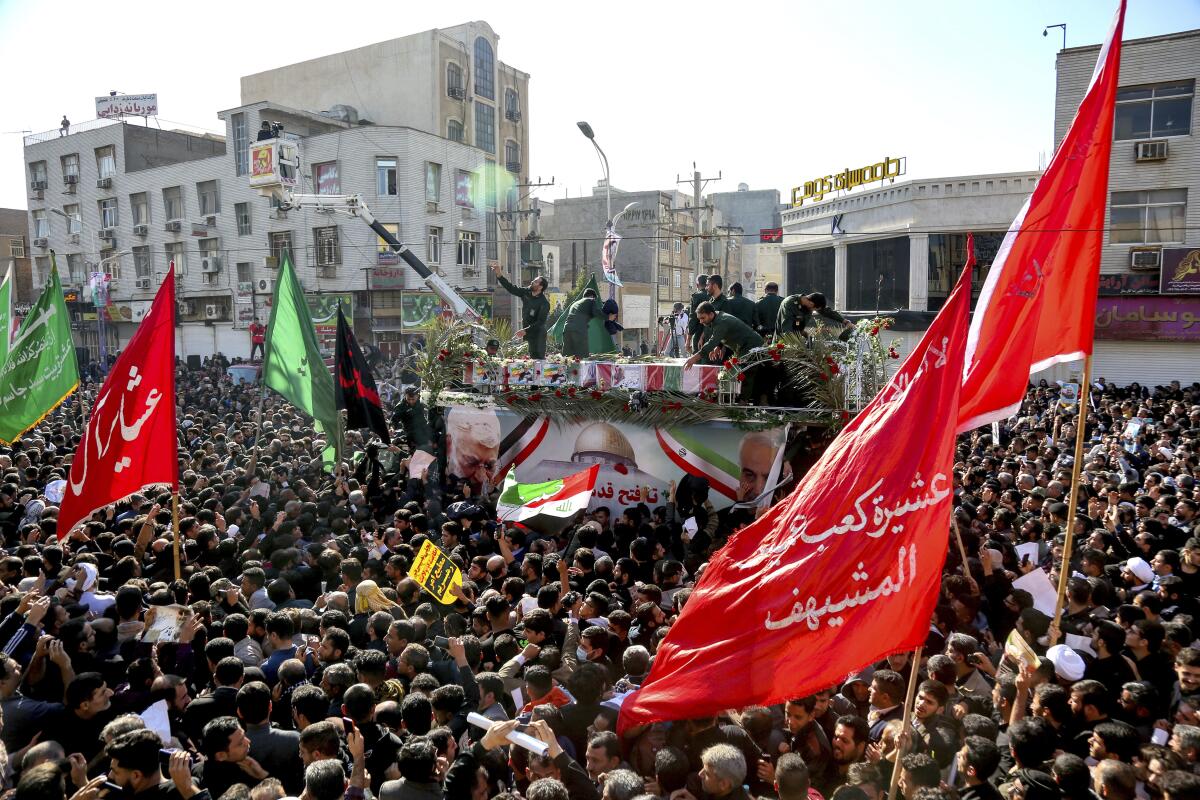
- Share via
BAGHDAD — In a rapidly intensifying regional backlash to the Trump administration’s killing of a senior Iranian general, Iran declared Sunday that it was tossing aside a pledge to limit the production of nuclear fuel, and the Iraqi parliament voted to expel U.S. troops from the country.
Adding to a pileup of unwelcome consequences of Friday’s lethal airstrike, the U.S.-led coalition in Iraq said it was suspending operations against Islamic State in order to concentrate on force protection, thus placing a moratorium on a mission that was once one of America’s core priorities in the Middle East.
For the record:
9:48 a.m. Jan. 5, 2020An earlier version of this article said Shiite lawmakers held back from joining the Iraqi parliamentary session. Sunni lawmakers held back from joining it.
In Washington, meanwhile, congressional Democrats voiced deep doubts about President Trump’s leadership and decision-making, with some senior lawmakers warning that erratic and bellicose behavior on Trump’s part was pushing the country closer to a full-scale conflagration with Iran.
“We do not need this president either bumbling or impulsively getting us into a major war,” Senate Minority Leader Charles E. Schumer of New York said on ABC’s “This Week.”
Trump spent another day at his Florida golf resort, dispatching Secretary of State Michael R. Pompeo to appear on every major news-talk show to defend the administration’s actions. Trump himself lobbed online insults that appeared aimed simultaneously at congressional adversaries seeking to hold him to account and at Iran, which renewed its vow to avenge the death of Gen. Qassem Suleimani.
“These Media Posts will serve as notification to the United States Congress that should Iran strike any U.S. person or target, the United States will quickly & fully strike back, & perhaps in a disproportionate manner,” he wrote on Twitter.
In what appeared to be a riposte to House Speaker Nancy Pelosi’s contention late Saturday that a White House notification to Congress about the strike raised more questions than it answered, the president’s tweet concluded: “Such legal notice is not required, but is given nonetheless!”
As the administration’s standard-bearer, Pompeo was left in the position of simultaneously deflecting and amplifying Trump’s utterances. On the Sunday shows, he parried queries about the president’s overnight threat to hit Iranian cultural sites — which would violate the Geneva Convention — by saying any U.S. strike would be “lawful.”
But Pompeo then appeared to flirt with the notion of killing more Iranian officials — the very norm that was violated by targeting Suleimani — by saying the United States might strike at the country’s “decision-makers” if Iran attacked American personnel or installations.
And later Sunday, Trump doubled down on his threat to hit Iran’s cultural sites. “They’re allowed to kill our people. They’re allowed to torture and maim our people. They’re allowed to use roadside bombs and blow up our people. And we’re not allowed to touch their cultural site? It doesn’t work that way.”
The Iranian announcement on pulling back its agreement to restrict the enrichment of nuclear fuel came on state television, which cited a statement by President Hassan Rouhani’s administration. It said the country would no longer abide by the landmark 2015 nuclear accord — which Trump pulled the U.S. out of — requiring it to limit the size of its enriched uranium stockpile and its research and development activities.
“The Islamic Republic of Iran no longer faces any limitations in operations,” a state TV broadcaster said. In a statement Sunday, Tehran said it remained open to negotiations with European partners and also refrained from backing away from earlier pledges not to seek a nuclear weapon.
Still, the announcement was the clearest signal yet by Iran that it was willing to invoke the specter of nuclear proliferation — and risk a direct confrontation with Israel, which insists it will never allow Iran to produce an atomic weapon — to put pressure on Washington as part of the escalating fallout from Suleimani’s killing.
Another hallmark of rising tensions came in the form of the Iraqi parliament’s vote to expel more than 5,000 U.S. troops from the country. The resolution was nonbinding but nonetheless constituted a powerful rebuke.
Trump responded Sunday by threatening to impose sanctions on Iraq or demanding “billions” of dollars that he said was spent on a U.S. air base there. “If they do ask us to leave, if we don’t do it in a very friendly basis, we will charge them sanctions like they’ve never seen before ever. It’ll make Iranian sanctions look somewhat tame.... If there’s any hostility, [if] they do anything we think is inappropriate, we are going to put sanctions on Iraq, very big sanctions on Iraq.”
The American military was on alert over the weekend as thousands of civilians and militia fighters marched through the streets of Baghdad, and calls to eject the United States emanated from around the country.
After invading Iraq in 2003 and ousting Saddam Hussein, the United States maintained a troop presence in the country as it was besieged first by civil war and then by the murderous insurgency of Islamic State.
Because the fight against Islamic State militants has been central to stated American aims in the region, the move to suspend those operations underscored the disruptive consequences of Trump’s abrupt decision to kill Suleimani. The U.S. military said that for now, the “first priority” would be protecting American forces, rather than training Iraqi ones.
The statement announcing the “paused” activities did not specifically cite the heightened threat in the wake of Suleimani’s killing, but pointed to repeated rocket attacks over the last two months by the Iranian-backed Iraqi militia Kataib Hezbollah. The statement said the American-led coalition expected at some point to return “full attention and efforts back to our shared goal of ensuring the lasting defeat” of Islamic State.
The extremist group, which once held sway over large swaths of Syria and Iraq, was driven out of the last of its territory, and its leader, Abu Bakr Baghdadi, killed himself during a U.S. raid in October. But Islamic State remnants still haunt the more remote areas near Iraq’s marshes and desert regions, with militants conducting hit-and-run attacks to sustain a relatively small but potent rural insurgency.
In the Iraqi parliament, caretaker Prime Minister Adel Abdul Mahdi presented lawmakers with the option of ending foreign troops’ presence as quickly as possible using “urgent procedures” or choosing a more gradual drawdown. He urged them to opt for the accelerated timetable.
“Even with the possibility of complications we might face, in the end it is the better option, in terms of practicality, benefit and sovereignty,” said Abdul Mahdi. “It’s in the interest of Iraq and the United States, in light of these circumstances, to end the presence after the recent developments and seeking to preserve friendly relations between the two sides.”
In his speech, the prime minister outlined the legality of the U.S. troop presence, adding that the Americans were there at Iraq’s request in 2011 and 2014, when Iraq faced the existential threat of Islamic State.
Though those troops had been vital to Iraq’s counter-Islamic State plans, Friday’s attack on Suleimani also killed Abu Mahdi Muhandis, a top Iraqi paramilitary leader. Muhandis’ death was viewed by many as an affront to Iraqi sovereignty and a hit against the country’s armed forces.
Even before deliberations, legislators entering the parliamentary building were greeted by a large banner commemorating Muhandis and describing him as a “martyr.” They began the session with a call-and-response in support of Suleimani, Muhandis and Iraq while chanting, “No, no to America.”
“The parliament has voted to commit the Iraqi government to cancel its request to the international coalition for help to fight” Islamic State, Speaker Mohammed Halbusi declared after the vote.
What the passing of the resolution means in practical terms is less clear.
“This is political posturing. It’s a note that effectively says the U.S. should leave, but this is not the way the legal system works,” said Renad Mansour, an Iraq expert with the London-based Chatham House think tank, in a phone interview Sunday. He added it was difficult to determine what immediate effect the move would have on foreign troops’ departure.
“But the message really is the growing anti-Americanism we’re seeing return,” Mansour said. “And if Americans go, the Americans provide so much top cover for other diplomatic missions and it would be a big loss, so that others would probably follow suit.”
Pompeo, in several interviews, suggested that Iraq’s leadership would ultimately decide to keep U.S. troops in the country.
“It is the United States that is prepared to help the Iraqi people get what they deserve, and continue our mission to take down terrorism from [Islamic State] and others in the region,” he said on CBS’ “Face the Nation.”
Separately, on “Fox News Sunday,” he said: “We are confident that the Iraqi people want the United States to continue to be there to fight the counter-terror campaign. And we’ll continue to do all the things we need to do to keep America safe.”
Parliament’s vote in favor of canceling the U.S. mandate comes as Washington has dispatched thousands of additional troops to the region to counter what it says is an increasingly belligerent Iran, even as it insists it will continue its role to prevent a resurgence of the extremists. Yet those troops would operate in an increasingly hostile environment, one with ever-smaller venues for diplomacy.
For some Iraqis, including Muqtada Sadr, a Shiite cleric who has decried U.S. and Iranian influence in the country, Sunday’s vote didn’t go far enough.
In a statement on Twitter, he described parliament’s response to the U.S. attacks as “feeble.” He called for the immediate closure of the “American embassy of evil” and U.S. bases in the country as well as a boycott on American products. He also demanded that contact with the U.S. be criminalized, and that the various paramilitary factions, both inside and outside Iraq, convene a meeting so as to form a transnational paramilitary force.
“And if parliament doesn’t do this,” he vowed, “we will have a greater action.”
Late Sunday, in what has become a nearly nightly occurrence, rockets struck the perimeter of the fortified Green Zone in Baghdad. It was unclear where they had fallen, and there were no immediate reports of casualties.
Bulos reported from Baghdad and King reported from Washington.
More to Read
Sign up for Essential California
The most important California stories and recommendations in your inbox every morning.
You may occasionally receive promotional content from the Los Angeles Times.
